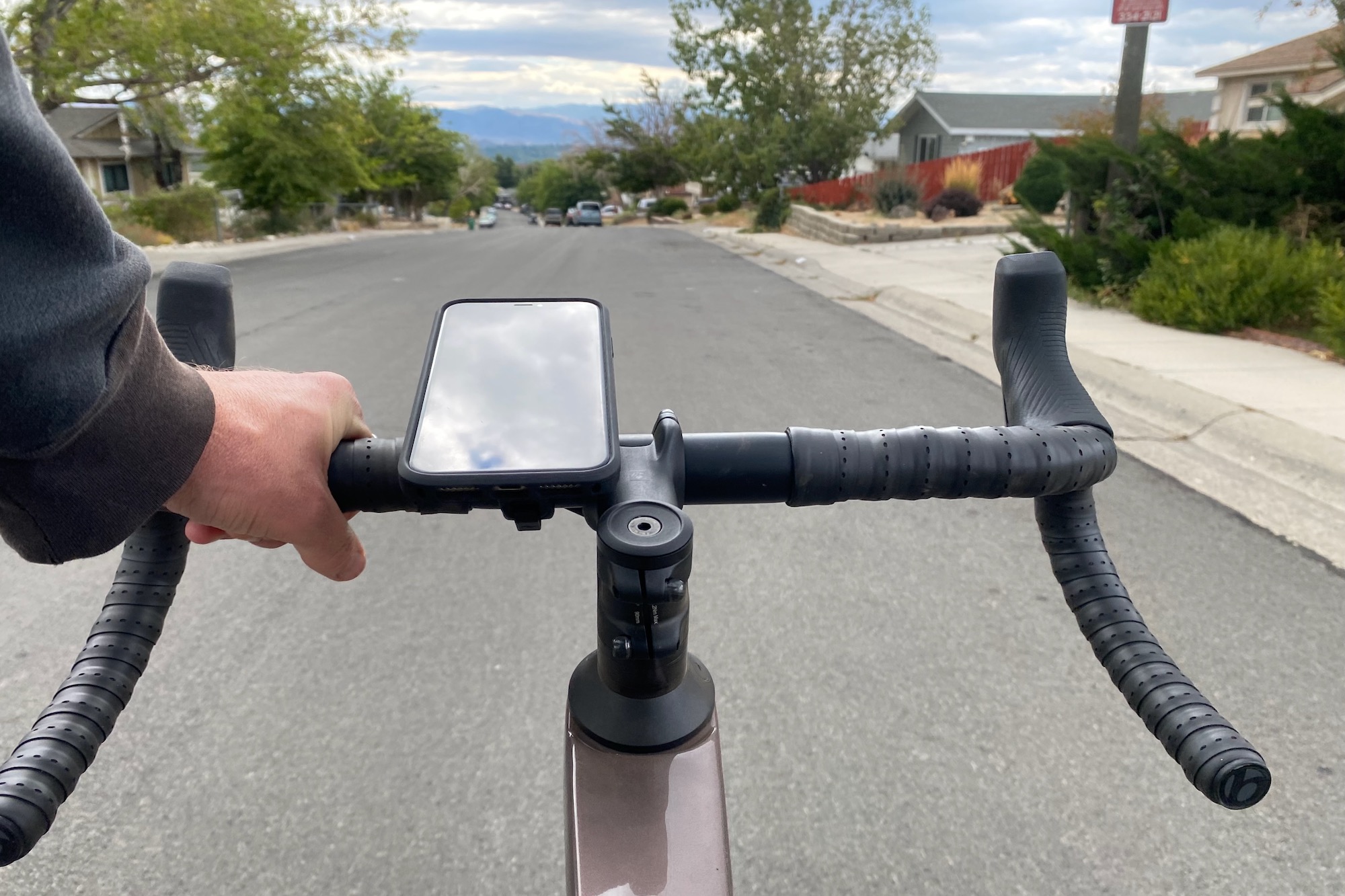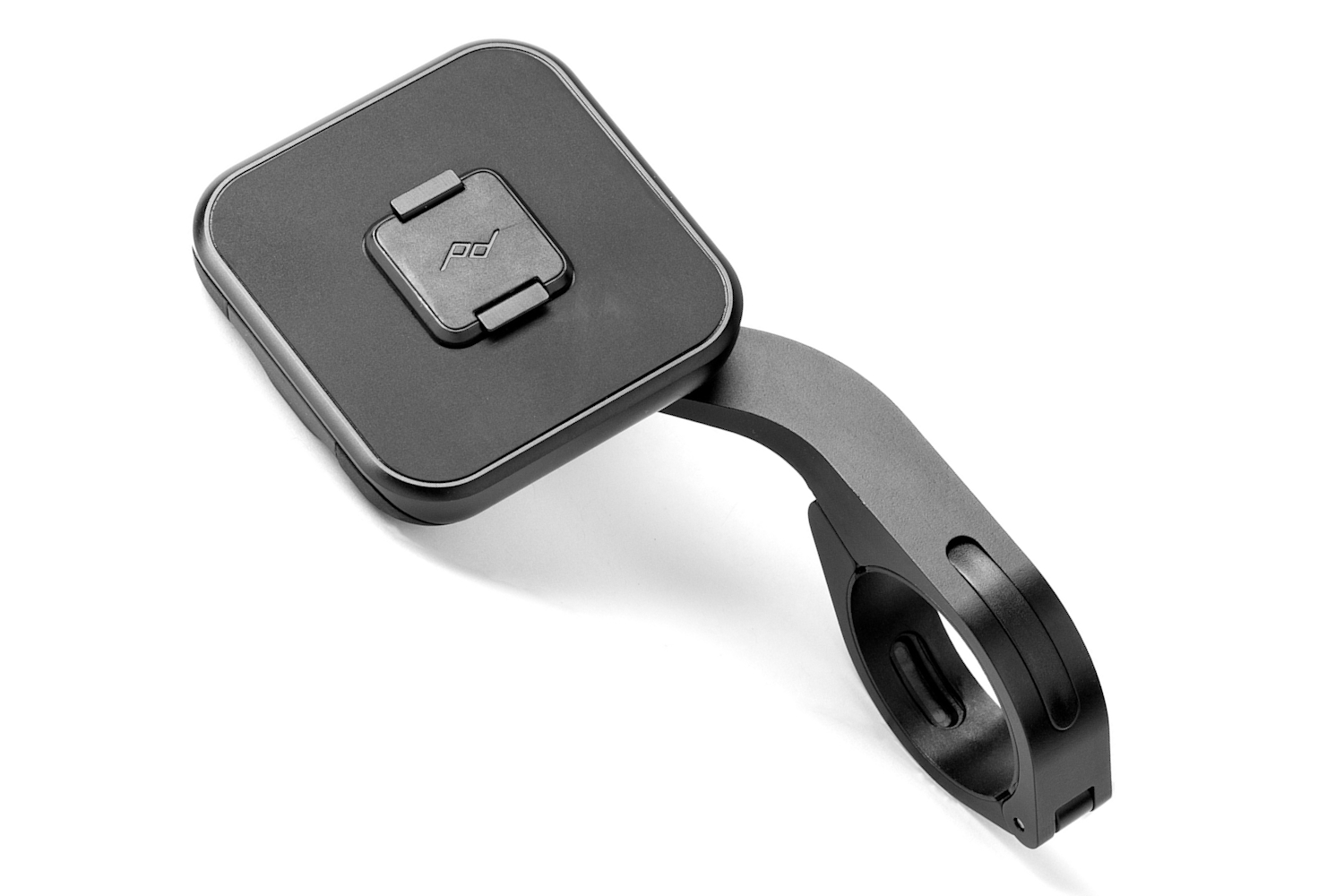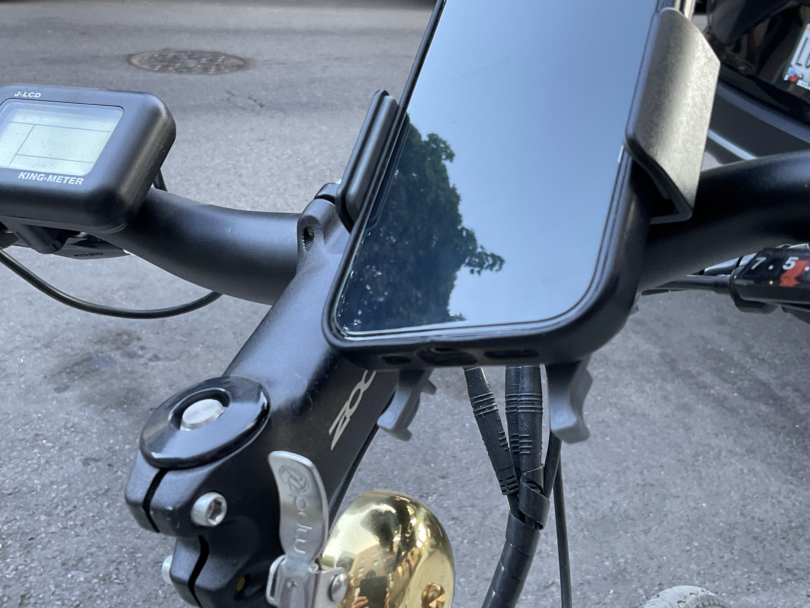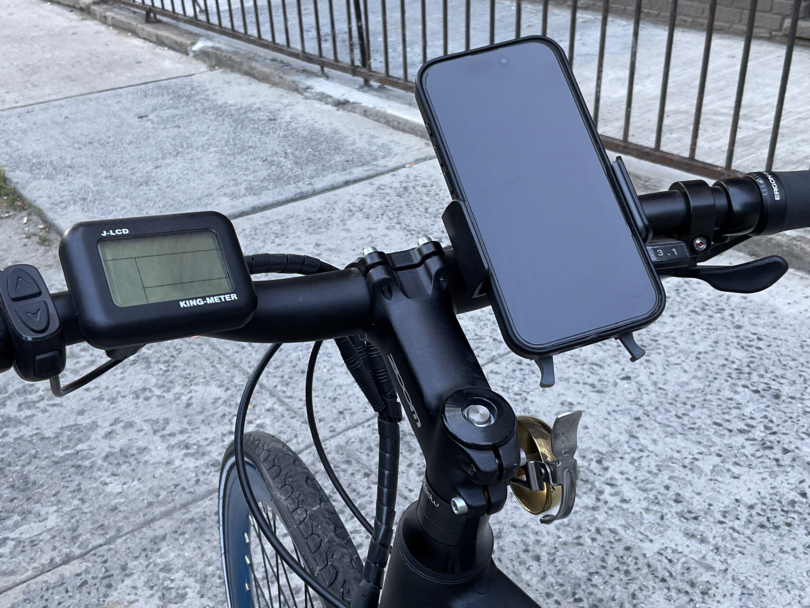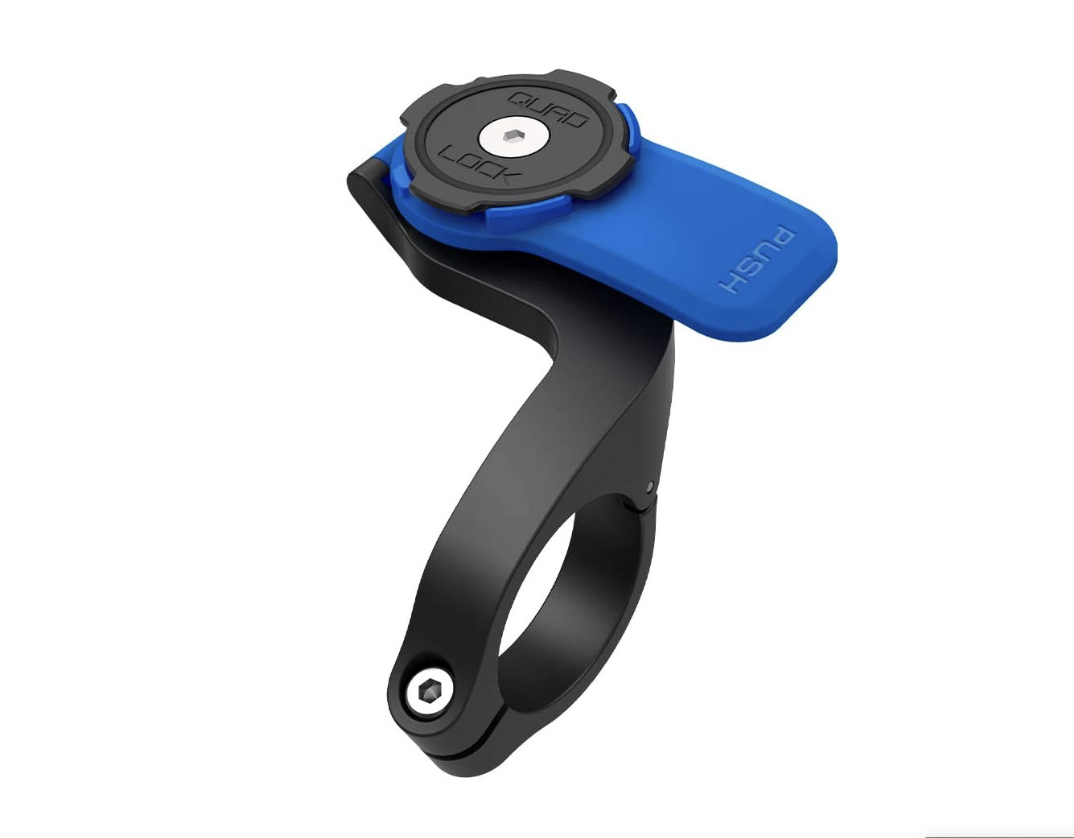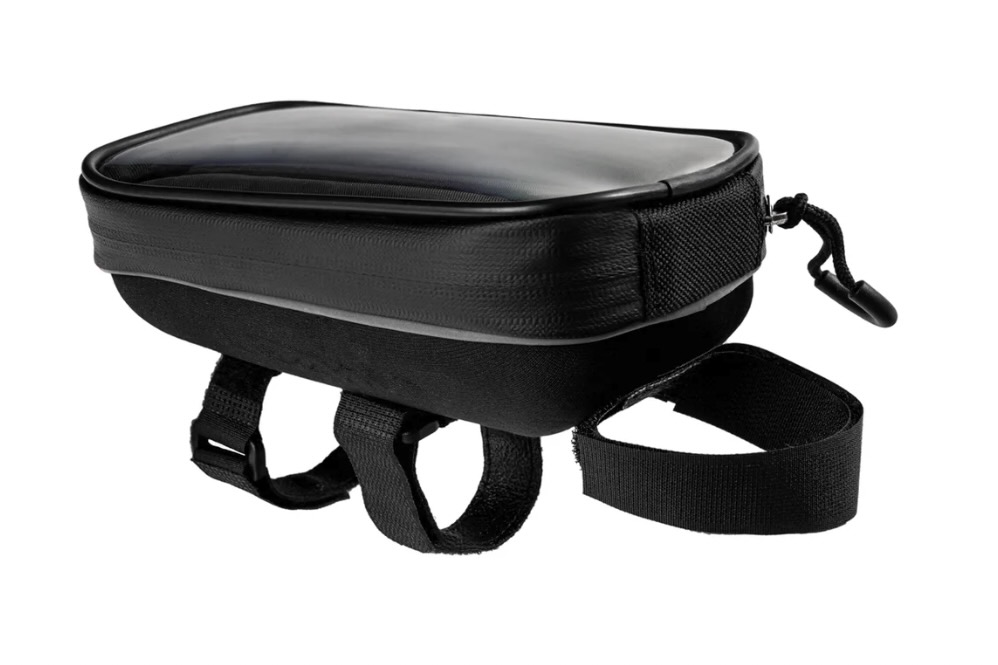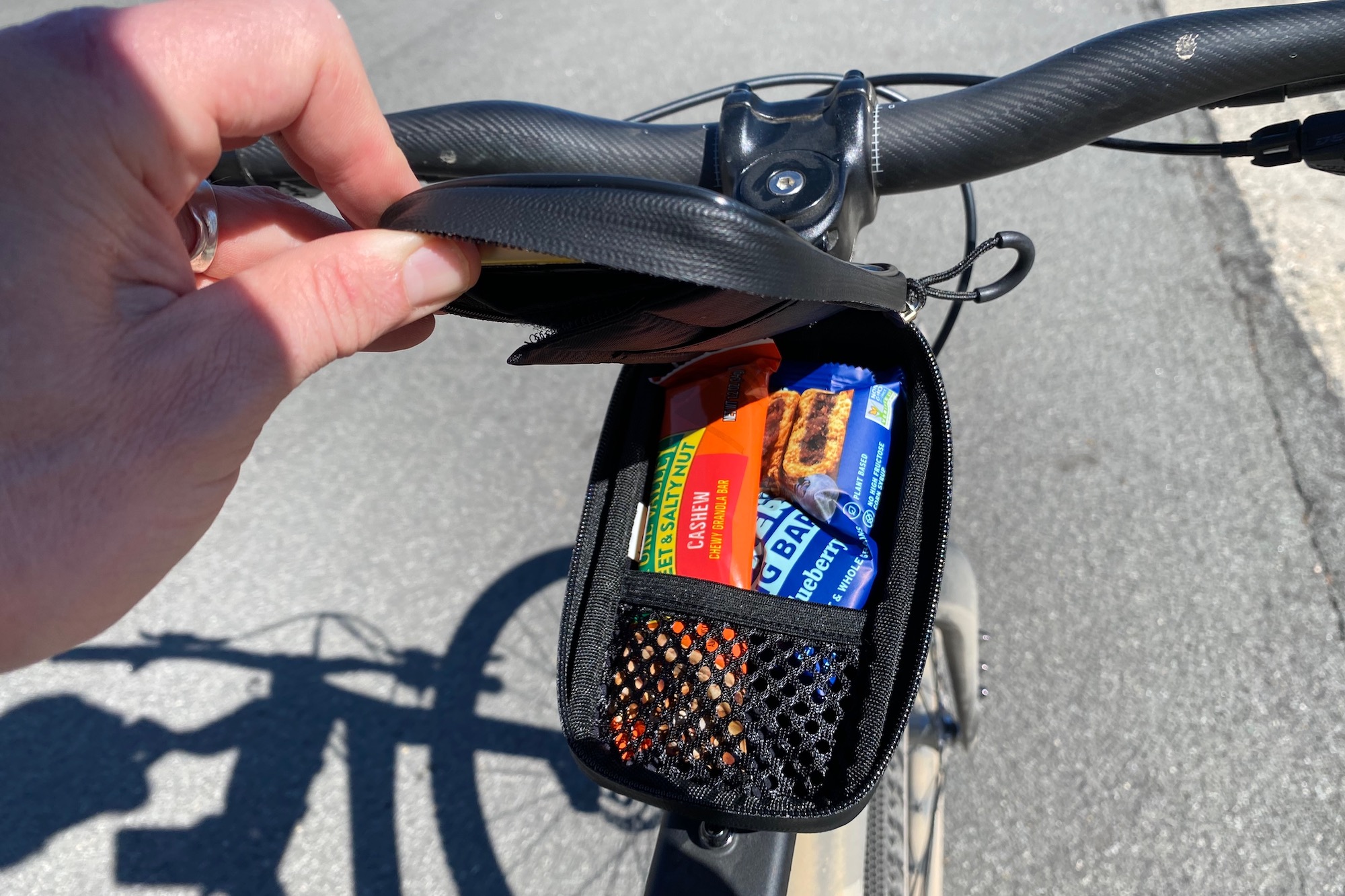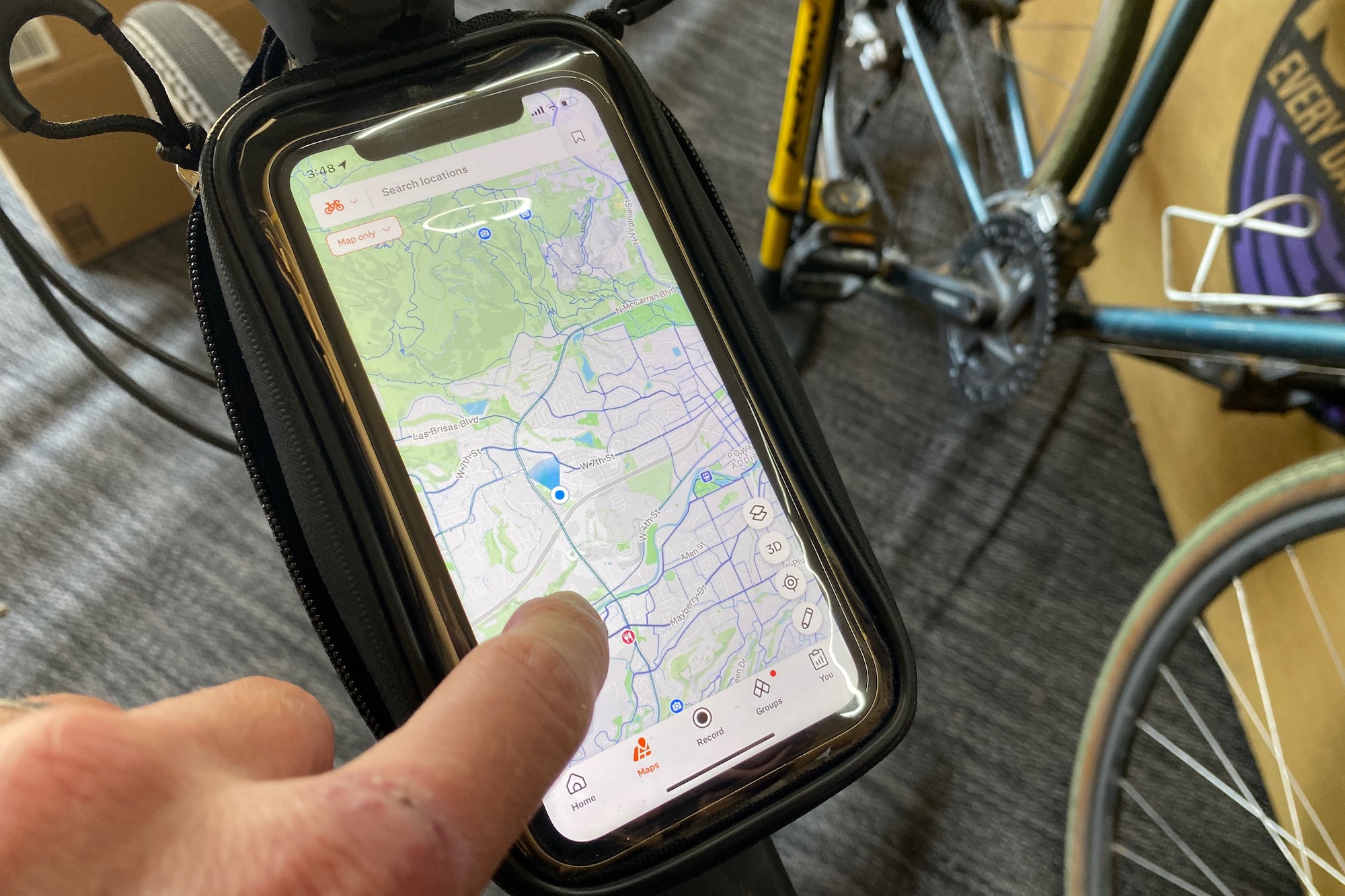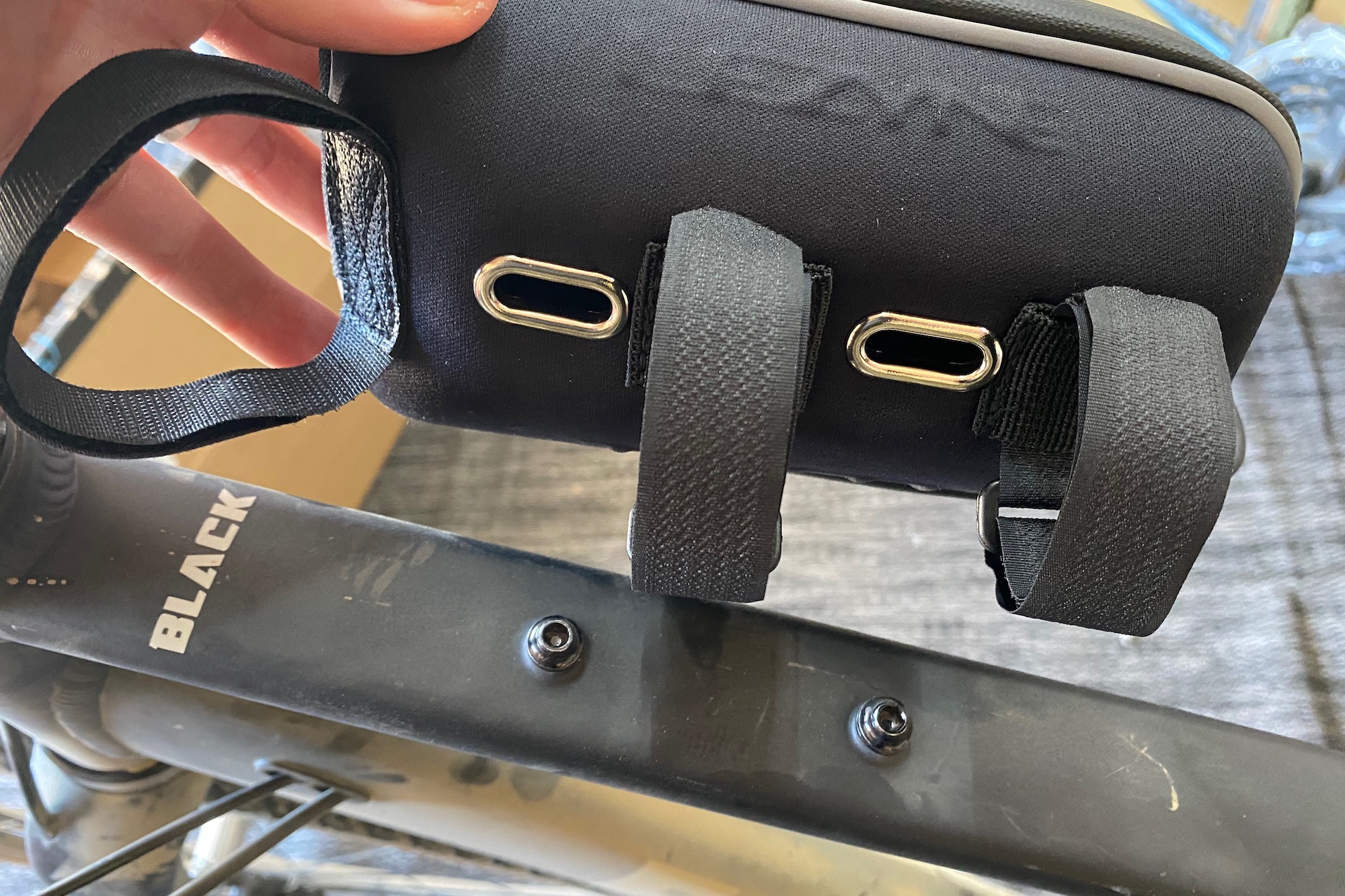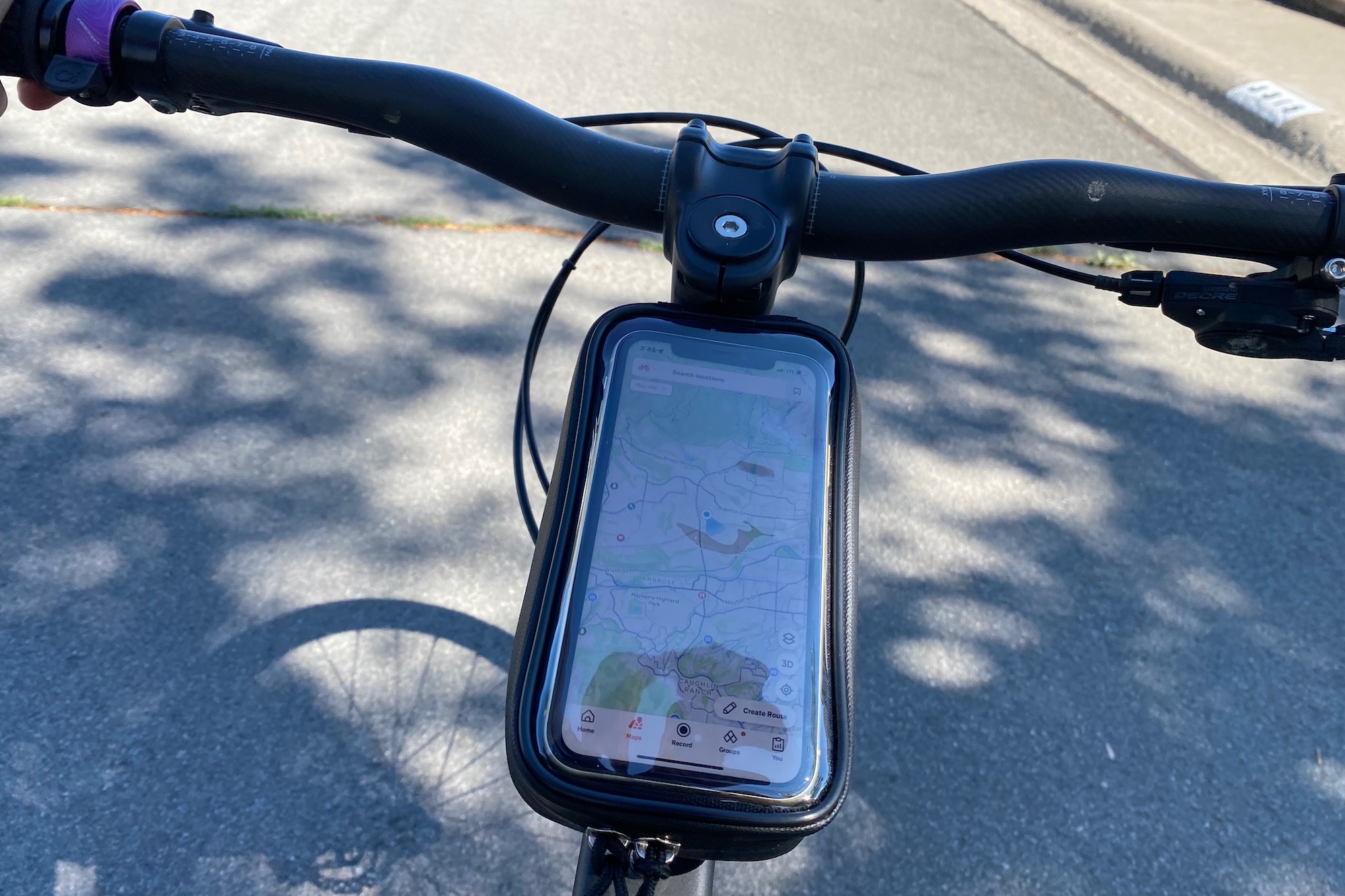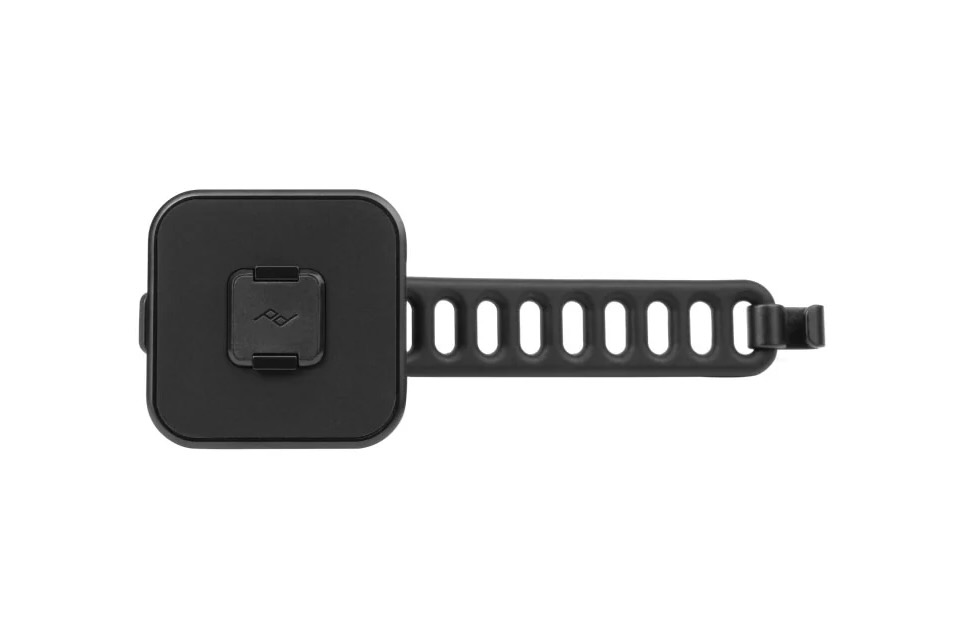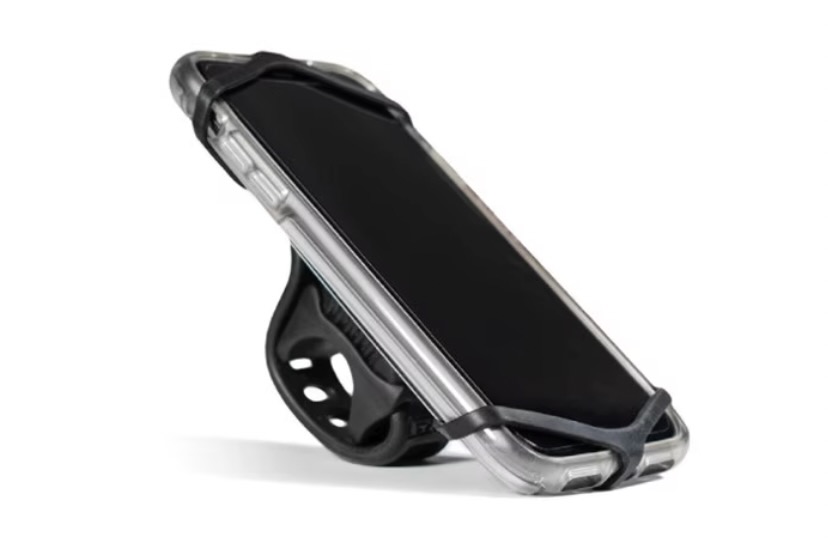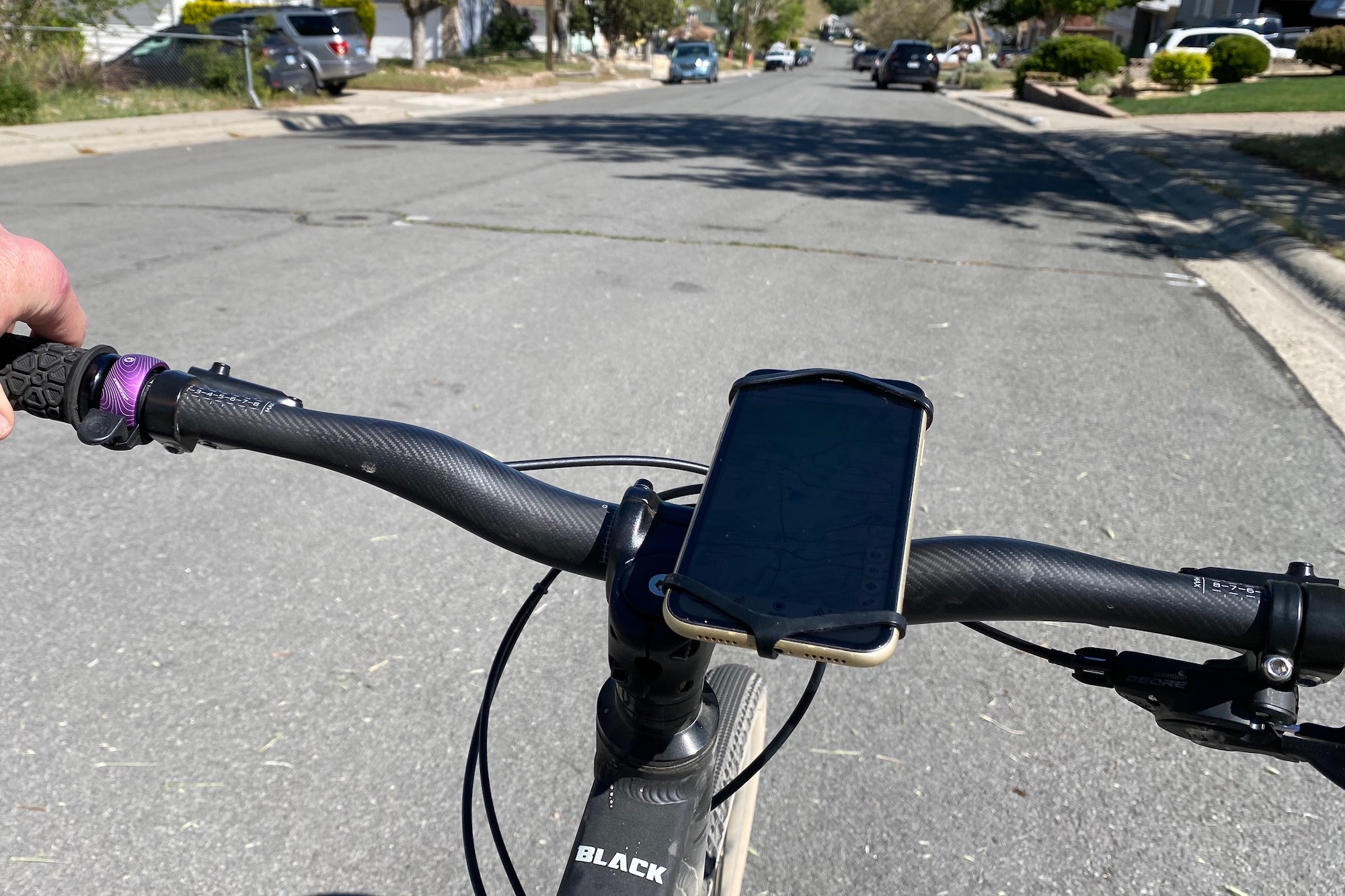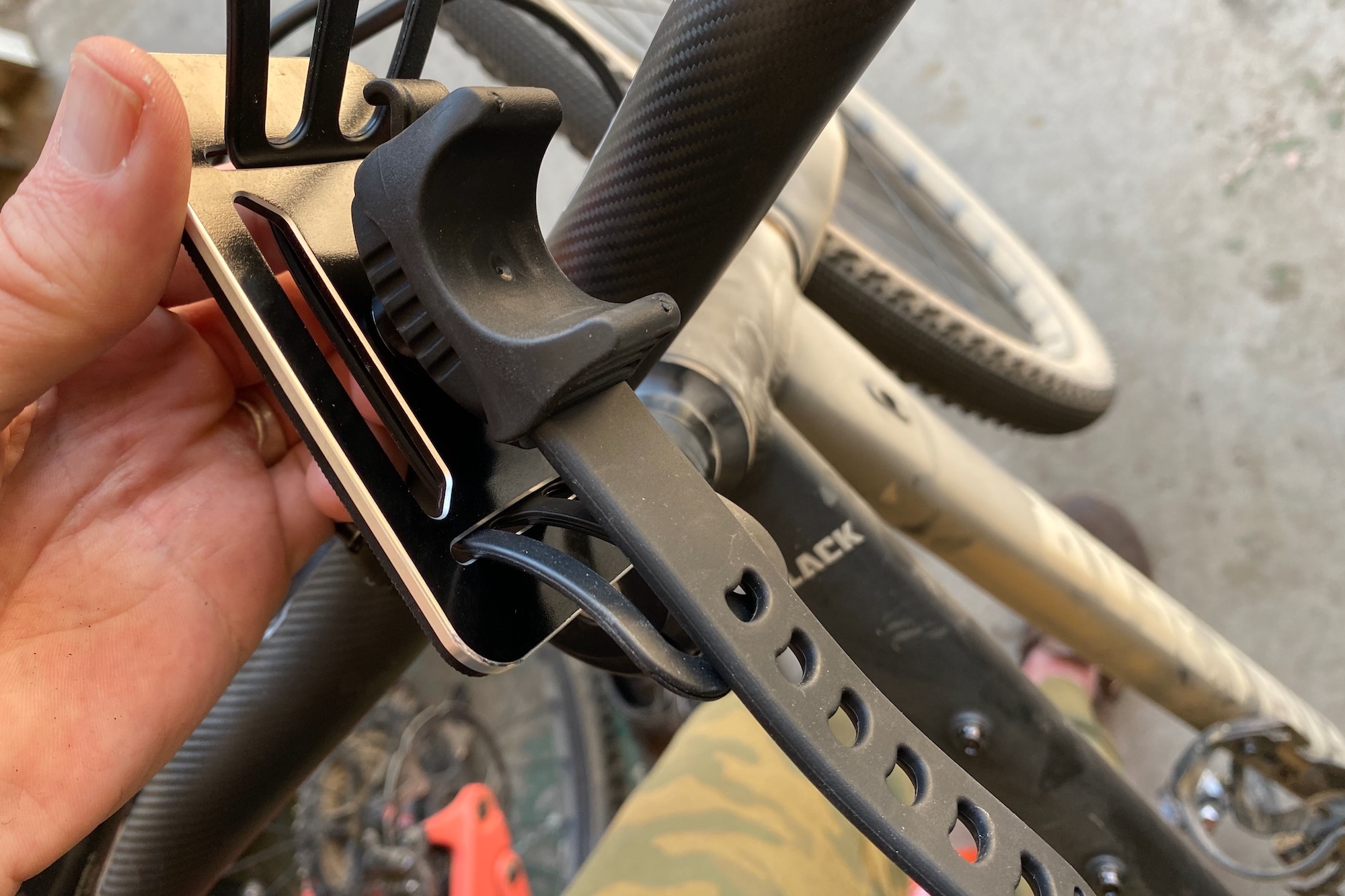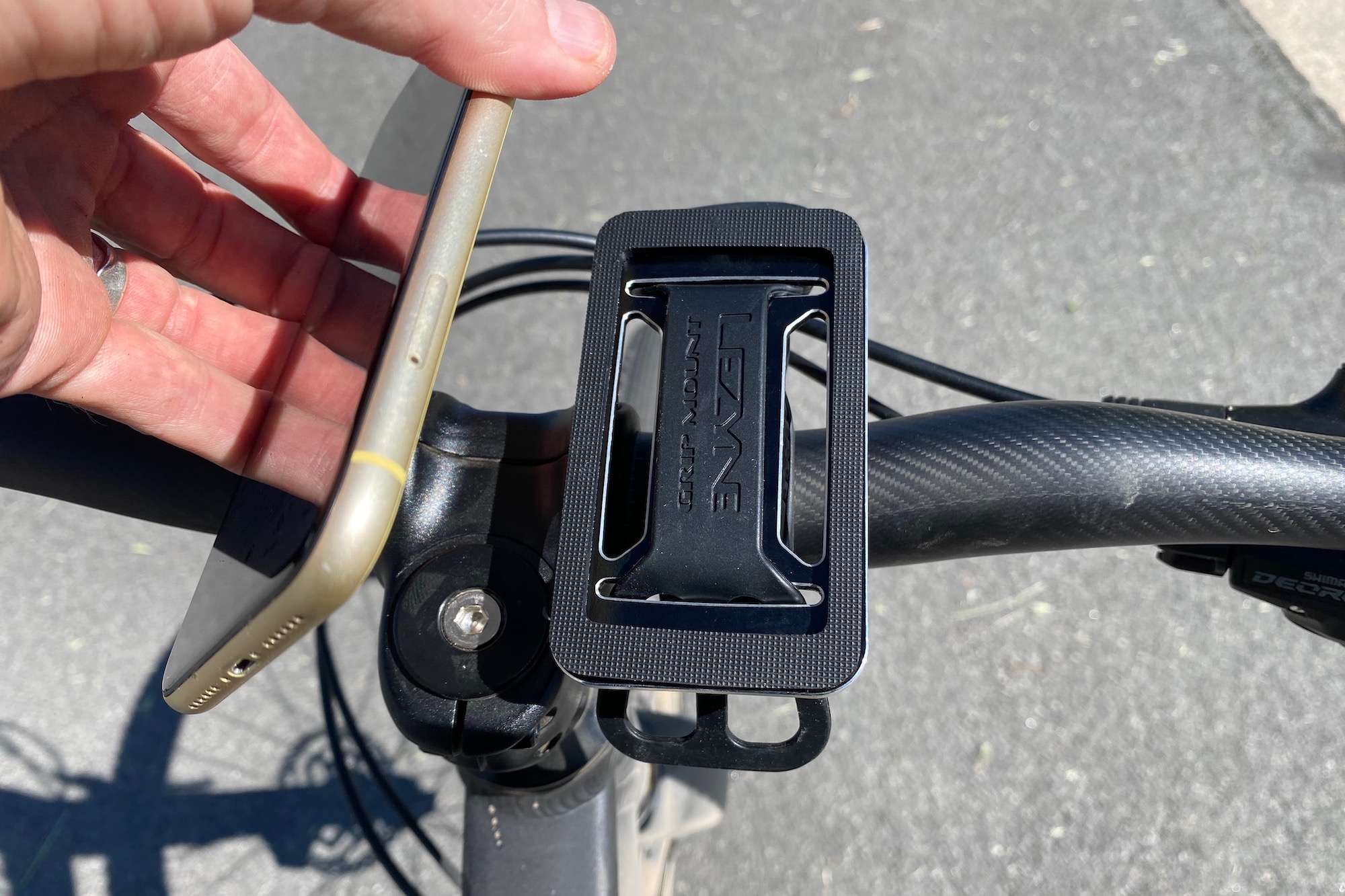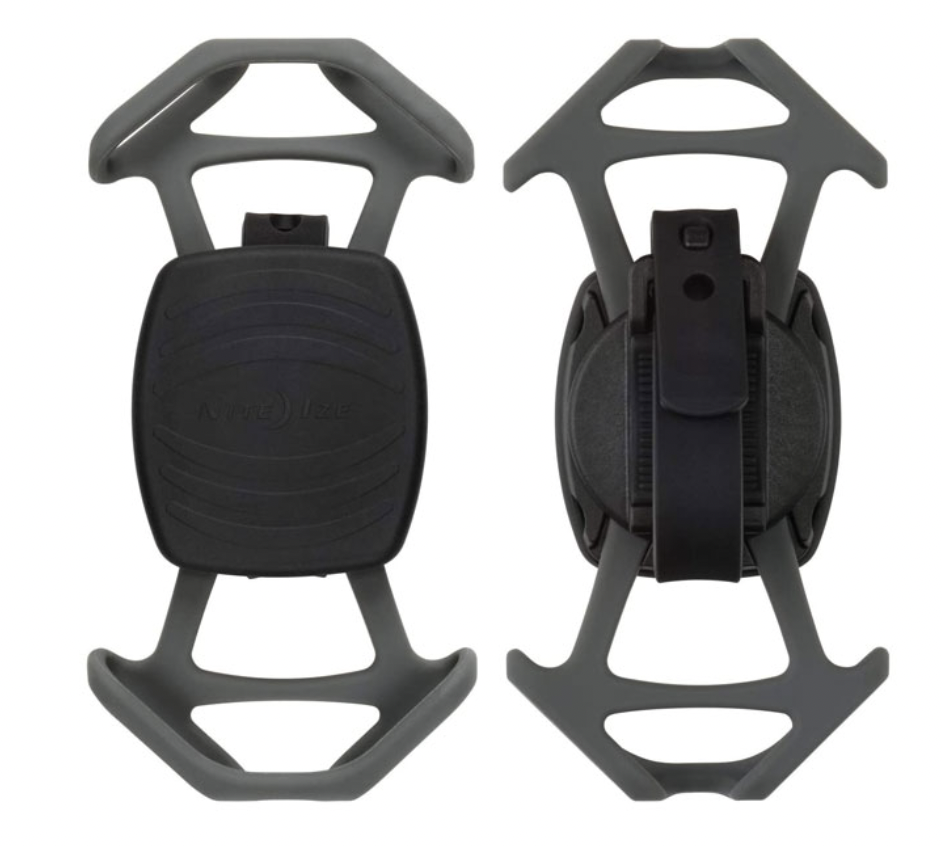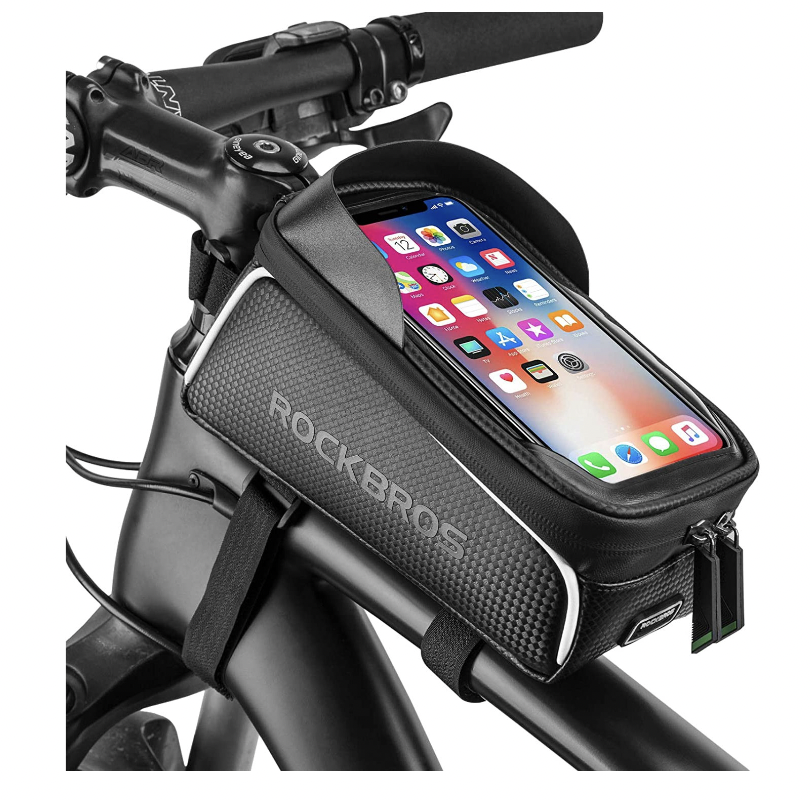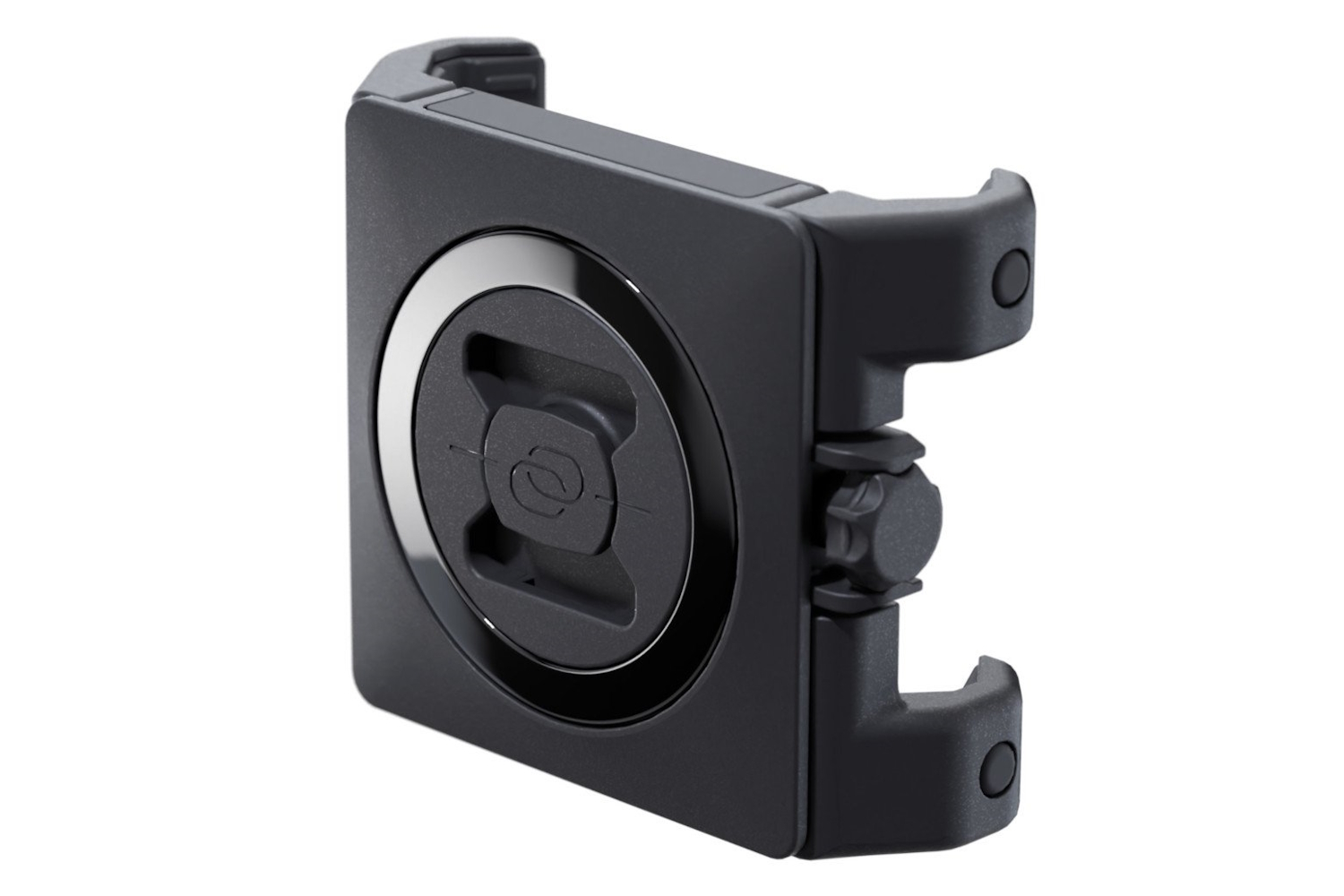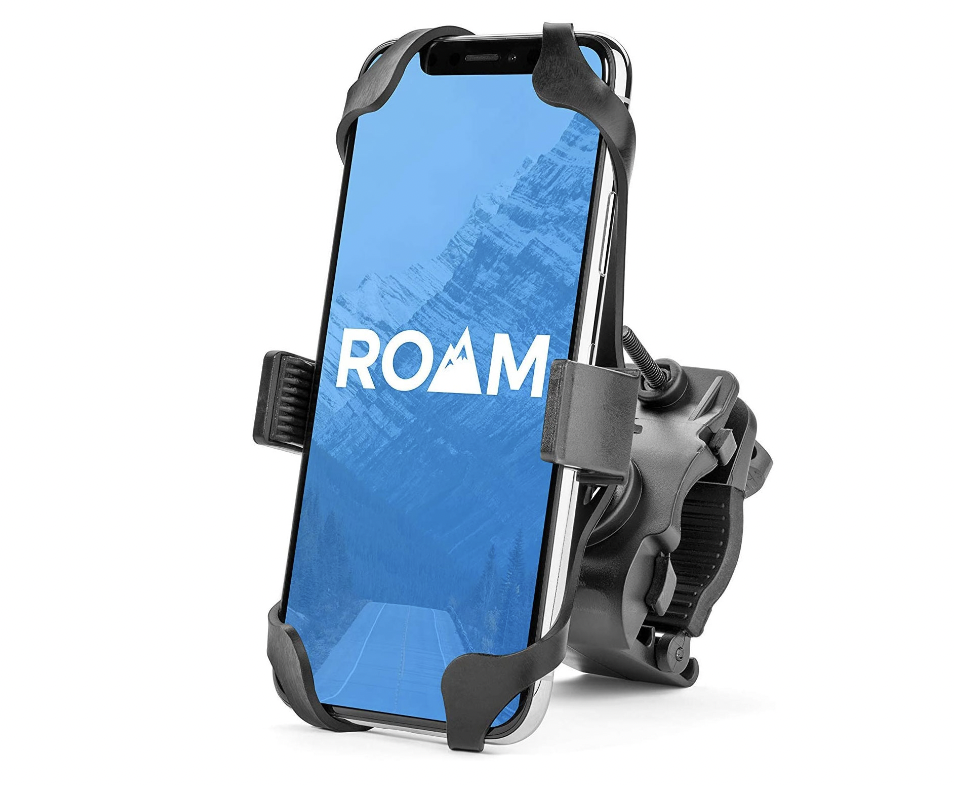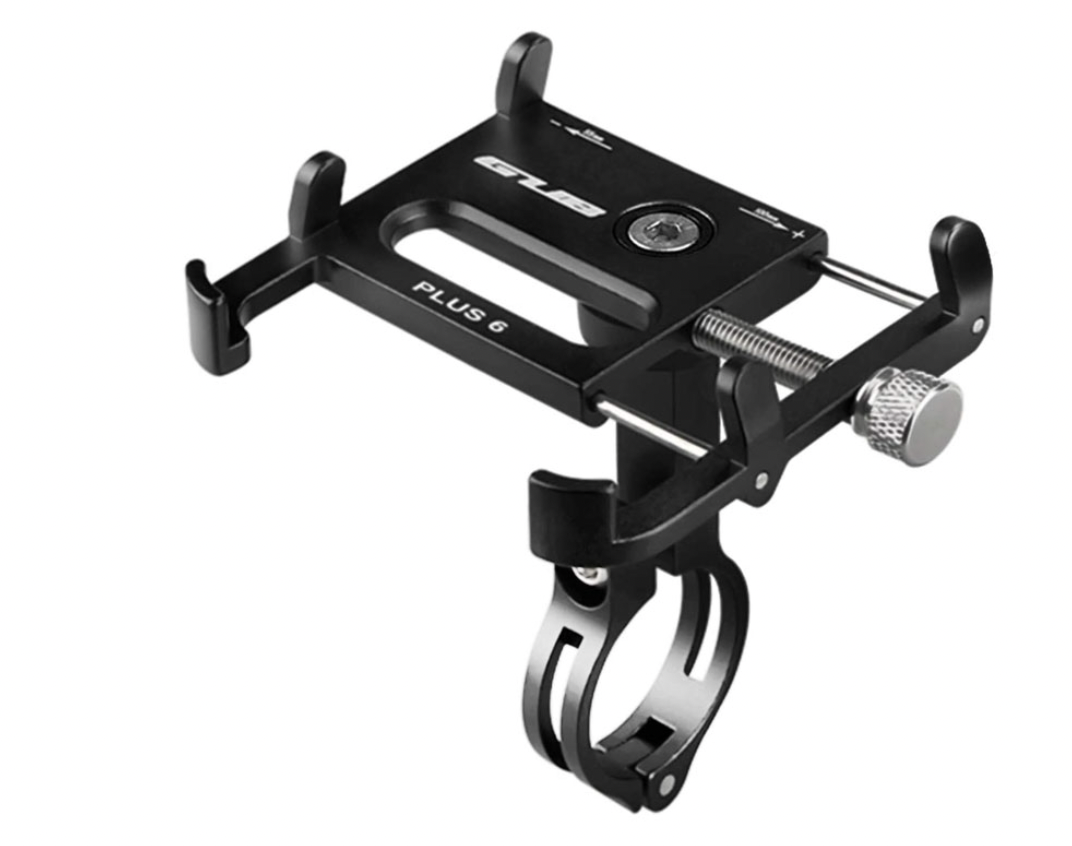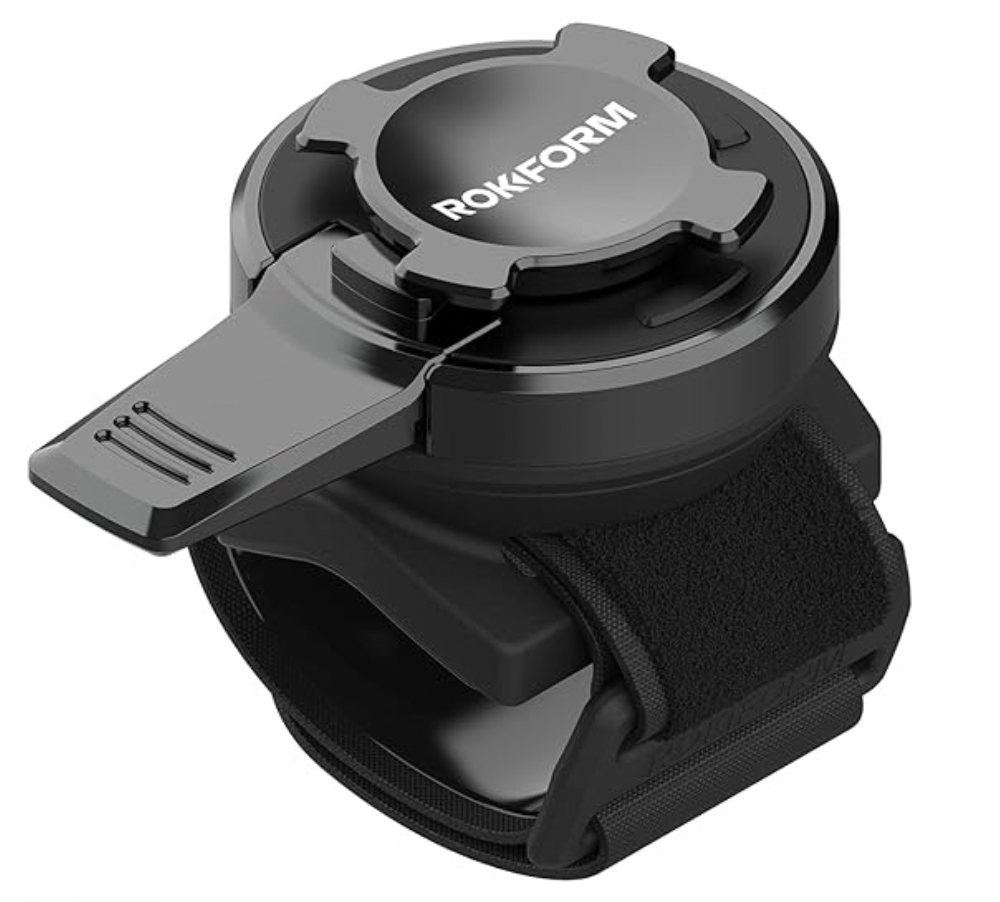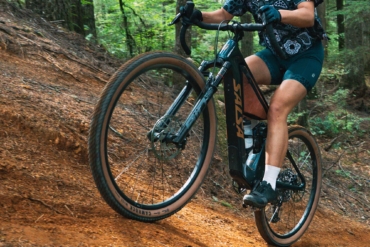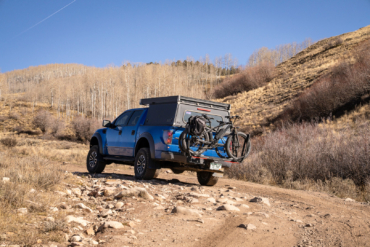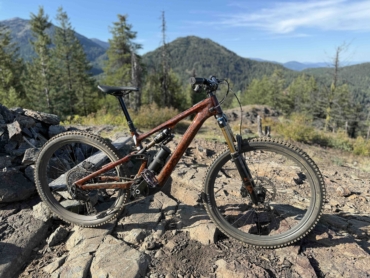Between navigation apps, music streaming services, and social workout platforms like Zwift and Strava, many cyclists rely on access to their phones while seated in the saddle. The best bike phone mounts allow a smartphone to function like the dashboard display of a car — information, connectivity, and controls that all exist in a single convenient location.
Modern smartphones aren’t cheap, however, so if you are going to choose to keep your phone attached to your bike while you ride at high speeds or through rough terrain, you’ll want to know that it will stay firmly attached. That’s where bike phone mounts come in handy. These devices are designed to keep your smartphone securely attached to your handlebars while you ride, with your display plainly visible.
Our testers put each model in this guide through its paces on road, gravel, and mountain bike rides, daily commutes, and errand runs. We switched them between bikes and ride types frequently while evaluating every aspect of their design, functionality, and performance in the real world. From the top-rated Peak Design Out Front Mount to the frame-bag-style Lezyne Smart Energy Caddy XL, check out our recommendations below.
Editor’s Note: We updated this guide on September 5, 2025, with the addition of the budget Nite Ize Squeeze Rotating Smartphone Bar Mount. We’ve also removed the Topeak Omni RideCase DX, which has been discontinued.
The Best Bike Phone Mounts of 2025
Peak Design Out Front Phone Mount
-
Value
8.5
-
Durability
9.3
-
Style
9.1
-
Performance
9.5
- Best for: Gravel, road, mountain, commuting
- Materials: Anodized aluminum
- Works with: Everyday Case for iPhone, Samsung Galaxy, Pixel, or use Universal Adapter
Pros
- Excellent rugged design
- Super-secure mechanical connection
- Easy one-handed operation
- 6' drop protection
- Variety of orientation options
Cons
- Expensive
- Require purchase of compatible case or adapter
Nite Ize Squeeze Rotating Smartphone Bar Mount
-
Value
7.8
-
Durability
7.0
-
Style
7.3
-
Performance
7.7
- Best for: Road, commuting, smooth gravel
- Materials: Plastic
- Works with: Any phone, with any case or without
Pros
- Doesn't rattle
- Doesn't require a specialty phone case
- Rotates 360 degrees easily but stays put firmly
- Squeezable levers make it easy to mount the phone and take it off
Cons
- No rubber backing where the back of the phone meets the mount
- Sketchy rubber strap that mounts to the handlebars
Quadlock Outfront Bike Mount
-
Value
8.4
-
Durability
9.0
-
Style
8.5
-
Performance
8.6
- Best for: Road, gravel, mountain, commuting
- Materials: Polycarbonate
- Works with: Quadlock case for iPhone, Samsung Galaxy, Pixel, or Quadlock Universal Adapter
Pros
- Super secure handlebar connection
- Equally secure phone connection
- Landscape & Portrait Orientation
Cons
- Snapping your phone on has a steep learning curve
- The complete ecosystem is expensive
Lezyne Smart Energy Caddy XL
-
Value
8.7
-
Durability
8.6
-
Style
7.8
-
Performance
8.8
- Best for: Road, gravel, commuting
- Materials: EVA foam, waterproof zipper, touchscreen compatible cover
- Works with: Modern smartphones, 6.5" max. length
Pros
- Mount with straps or hardware
- Water resistant
- Holds phone plus 0.5 liters of storage
- Reasonable price
- Touchscreen cover works well
Cons
- Wide profile
- Comparatively slower to remove phone
- Can't access side buttons
Peak Design Universal Bar Mount
-
Value
8.5
-
Durability
7.8
-
Style
8.6
-
Performance
8.4
- Best for: Road, commuting, smooth gravel
- Materials: Anodized aluminum, silicone band, neodynium magnets
- Works with: Everyday Case for iPhone, Samsung Galaxy, Pixel, or use Universal Adapter
Pros
- Quick and easy to attach/detach or switch between handlebars
- Works with just about any handlebar
- Magnetic and mechanical connection to phone case
- Can orient phone vertically or horizontally
- Peak Design has a broad selection of other accessories
Cons
- You need to buy a compatible Peak Design case
- Universal mount + case = pretty expensive
- Not the most stable over super rough terrain
Other Bike Phone Mounts We Tested
-
Value
8.6
-
Durability
8.3
-
Style
8.4
-
Performance
8.1
- Best for: Road, commuting, smooth gravel
- Materials: Machined aluminum, rubber
- Works with: Handlebar mount, universal phone fit
Pros
- Reasonable price
- Works with any handlebar and phone
- Includes straps for smaller and larger phones
- Quality construction
Cons
- Rubber straps can interfere with screen
- Needs to be strapped very tight or it can shift on the handlebar
-
Value
8.8
-
Durability
6.6
-
Style
7.2
-
Performance
7.4
- Best for: Road, gravel, commuting
- Materials: Polycarbonate, Rubber
- Works with: Universal mount
Pros
- Fits a ton of different phones and handlebars
- 360 degree swivel
- Excellent price point
Cons
- Less secure than other mounts
- Long-term durability concerns
-
Value
8.6
-
Durability
7.5
-
Style
7.9
-
Performance
7.1
- Best for: Road, commuting
- Materials: Lightweight carbon fiber material
- Works with: Phones less than 6.5″ long
Pros
- Affordable
- Lightweight
- TPU film allows you to use the touch screen while riding
Cons
- Slides around on bumpy terrain
- Side buttons on phone are hard to press
-
Value
7.3
-
Durability
6.7
-
Style
7.3
-
Performance
6.5
- Best for: Road, commuting
- Materials: Polycarbonate
- Works with: Universal mount
Pros
- Multiple mounting choices
- Landscape or portrait mode
- Good value
Cons
- Design is a little finicky
- The universal clamp is bulky
- Cinch mount doesn't inspire confidence
-
Value
7.8
-
Durability
8.0
-
Style
7.2
-
Performance
6.8
- Best for: Road, commuting, smooth gravel
- Materials: 6061 aluminum alloy
- Works with: Any smartphone under 7″ long
Pros
- Good value
- Durable metal construction
Cons
- Single-point attachment may not suit handlebars of uncommon diameters
- Fiddly to use compared to other designs
-
Value
7.5
-
Durability
8.4
-
Style
7.7
-
Performance
7.9
- Best for: Road, gravel, mountain, commuting
- Materials: Aluminum body and Velcro strap
- Works with: Rokform phone cases or Rokform adaptors
Pros
- Well-built and durable
- Low-profile
- Secure
- Easy to install and attach/detach phone
Cons
- Requires Rokform case or adaptor
- Expensive
Bike Phone Mount Comparison Chart
| Phone Mount | Price | Compatability |
|---|---|---|
| Peak Design Out Front Phone Mount | $70 | Everyday Case for iPhone, Samsung Galaxy, Pixel, or use Universal Adapter |
| Nite Ize Squeeze Rotating Smartphone Bar Mount | $30 | Universal Mount |
| Quadlock Outfront Bike Mount | $60 | Quadlock case for iPhone, Samsung Galaxy, Pixel, or Quadlock Universal Adapter |
| Lezyne Smart Energy Caddy XL | $40 | Fits most modern smartphones, 6.5″ max. length |
| Peak Design Universal Bar Mount | $50 | Everyday Case for iPhone, Samsung Galaxy, Pixel, or use Universal Adapter |
| Lezyne Smart Grip Phone Mount | $30 | Universal mount |
| Nite Ize Wraptor | $26 | Universal mount |
| ROCKBROS Phone Front Frame Bag | $26 | Phones less than 6.5″ long |
| SP Connect Bike Bundle 2 Universal Phone Clamp | $30 | Universal mount |
| Roam Universal Premium Bike Phone Mount | $18 | Any smartphone up to 3.5″ wide |
| GUB Bike Phone Mount | $18 | Any smartphone under 7″ long |
| Rokform Universal Bike Phone Mount | $60 | Rokform cases for iPhone, Samsung Galaxy, Pixel, or Rokform adaptors |
Our Expert Testers
Here at GearJunkie, there are a few things that remain constant through all of our gear evaluations — we’re looking for the very best gear we can find while still keeping an eye out for the best value we can get. Our staff includes professional gear reviewers, former racers, recreational cyclists, bike commuters, and everyone in between — people who care about fit, finish, and function.
Our testers spend their time carefully evaluating new products so that you don’t have to, which translates to more time in the saddle for you. We strive to create thorough, comprehensive, and helpful reviews to help you find the best gear for your individual needs.
This guide was originally curated, tested, and written by Paul Mandell. Paul has 2 decades of experience in the saddle as an itinerant racer and recreational rider. He completed his graduate studies in exercise science and studied the critical power model for cycling, meaning that he’s no stranger to testing, training, and racing bikes.
Lately, Paul has been enjoying a return to the “Gotta get up to get down” mentality while in the saddle and getting back to his roots by ripping around the roads and trails near his home in Bishop, Calif., on a steel hardtail, sporting a big, toothy grin and a twinkle in his eye. Paul has also contributed to numerous other guides, including bike lights, protective bike locks, workout headphones, and many more.
GearJunkie editor Jeremy Benson also contributed to the testing efforts of our bike phone mounts. He has been cycling for over three decades and has spent the past 8 years professionally testing and reviewing bikes and bike-related gear. As an avid mountain and gravel rider and racer, Benson spends lots of time on the bike while training, riding for fun, commuting, and testing out the latest gear.
His performance-oriented mindset and years of experience scrutinizing the products he tests have made him adept at analyzing, comparing, and sussing out the subtle differences that separate the best from the rest. In addition to phone mounts, Benson has contributed his expertise to reviews ranging from hitch bike racks and electric cargo bikes to mountain bike shoes.
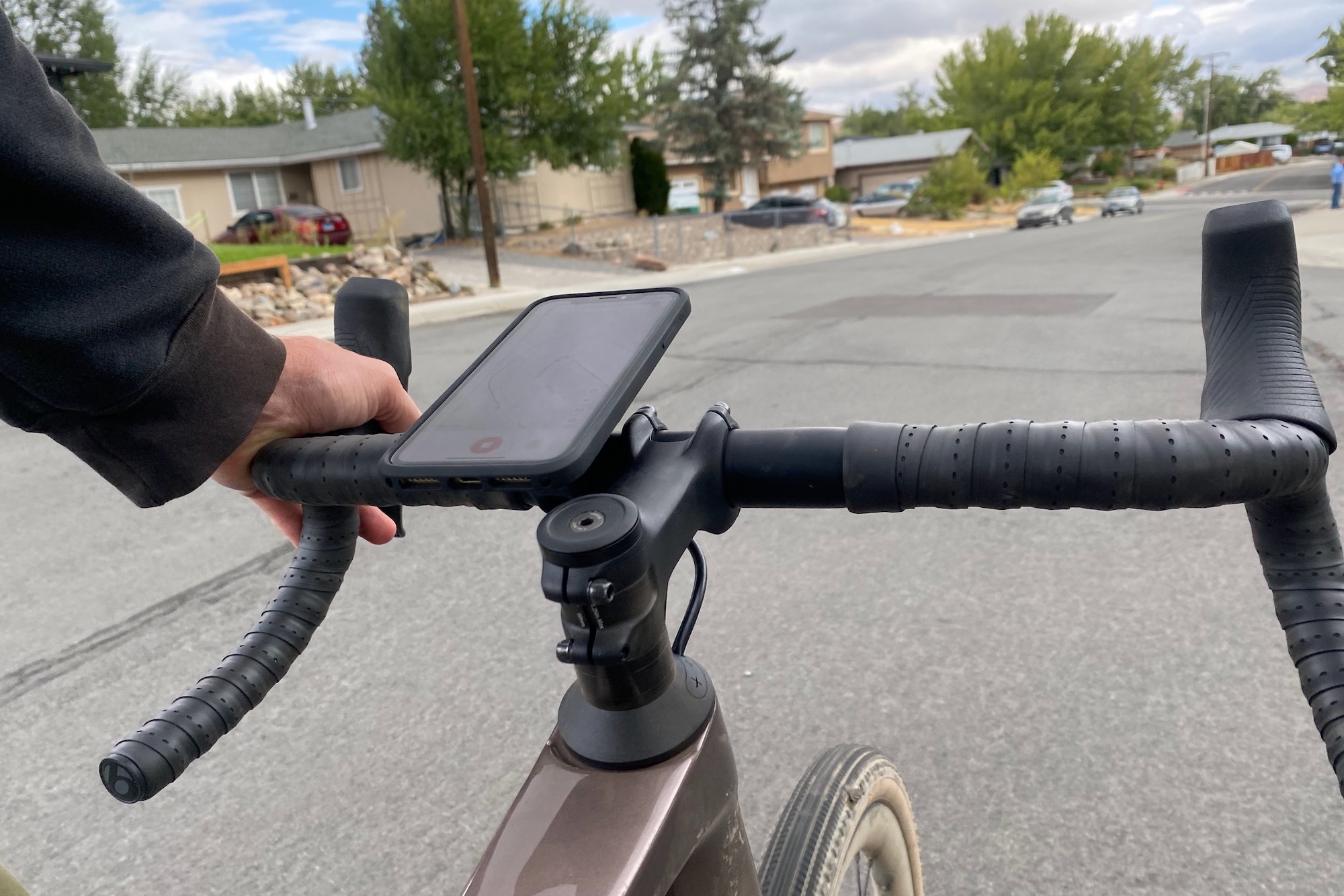
How We Tested Bike Phone Mounts
We started this review by thoroughly researching offerings in the world of handlebar phone mounts and ordering a selection from the standout performers. Then, we established a few criteria to help us evaluate the mounts we selected:
- Simplicity: Is the mount easy to set up and operate, or do we need a master’s in engineering to use it? Mounts that scored high in this metric offered easy, intuitive setups and a streamlined design.
- Functionality: We looked at how well the mounts worked, namely, does the mount do what the company advertises? Were there any hiccups with how and where the mount engages or disengages? Are there any particularly annoying quirks that would dissuade us from using the mount? Did the design team think things through?
- Ease of Use: There is some overlap with simplicity here, but it’s important to note that not all simple things are easy to use, like in the case of the Quadlock, which is a simple design that isn’t always easy to use. We evaluated the mounts on how easy it was to install on the bike, and subsequently how easy it was to attach the mount to the phone.
- Security & Peace of Mind: This one is fairly self-explanatory. We evaluated mounts on how secure they were and, consequently, how much peace of mind they offer when it comes to keeping your phone safe and secure. Mounts with a mechanical engagement tended to score higher in this category, like the Peak Design mount, which features both MagSafe and mechanical engagement to keep your phone secure. Additionally, drop protection on the included cases also carried weight in this category.
Testing took place in both Bishop, Calif, and Reno, Nev., where Benson and Mandell attached these bike phone mounts to a variety of different bikes and hit the roads, gravel, and trails. From daily commutes around town to road and gravel rides and singletrack exploration, we used each model just as any consumer would. We evaluated each model based on the criteria above to determine our favorites and those that excel in specific ways compared to the rest.
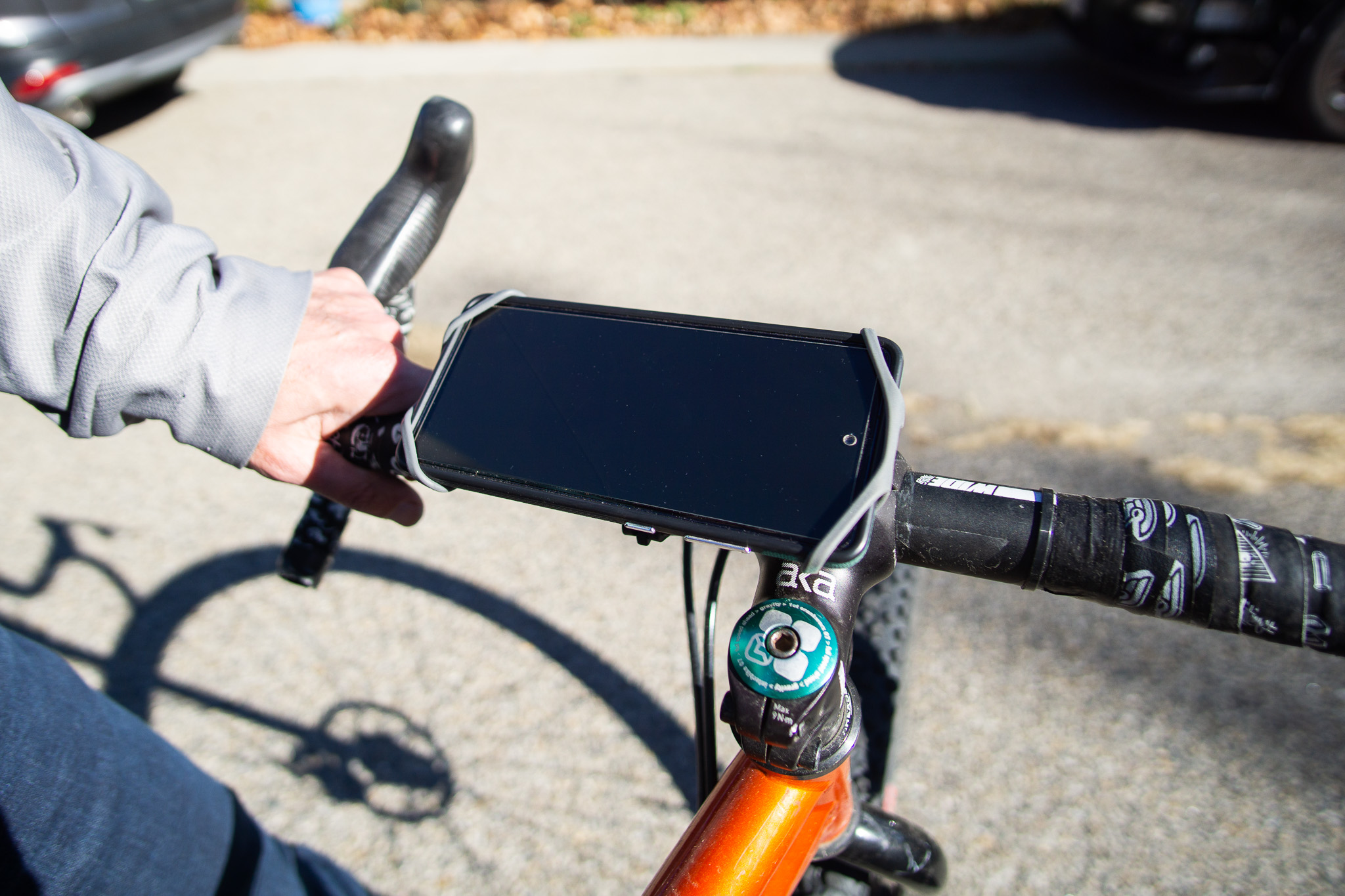
Buyers Guide: How to Choose a Bike Phone Mount
As you search for the perfect bike phone mount, consider your specific needs as a cyclist and choose the product that best meets them. It may be a good idea to go for a few rides and think carefully about how you plan to use your bike phone mount.
Do you often ride on rough terrain? Do you often ride in wet or muddy conditions? And do you want to be able to change the angle of your phone’s display as you ride? Asking yourself these kinds of questions allows you to narrow your options and choose a mount that can elevate your experience as a rider.
Every bike mount is slightly different, and there are lots of variations to consider. Some of the key characteristics that differentiate one mount from the next include handlebar diameter, mounting method, smartphone compatibility, durability, design, ease of phone detachment, water resistance, and rough terrain capability.
Handlebar Diameter
Before you purchase, it’s wise to measure the diameter of your handlebars. Choose the specific part of the bar where you plan to install your mount and compare your measurement with the specs of the mount you’re considering.
Most road, gravel, commuter, and mountain bikes have handlebars with diameters between 0.9 inches and 1.25 inches. The majority of bike phone mounts are designed to fit the range of handlebar diameters and round bars. If you have an oddly shaped handlebar, like an aero handlebar, you’ll want to double-check that the mount you purchase will be compatible.
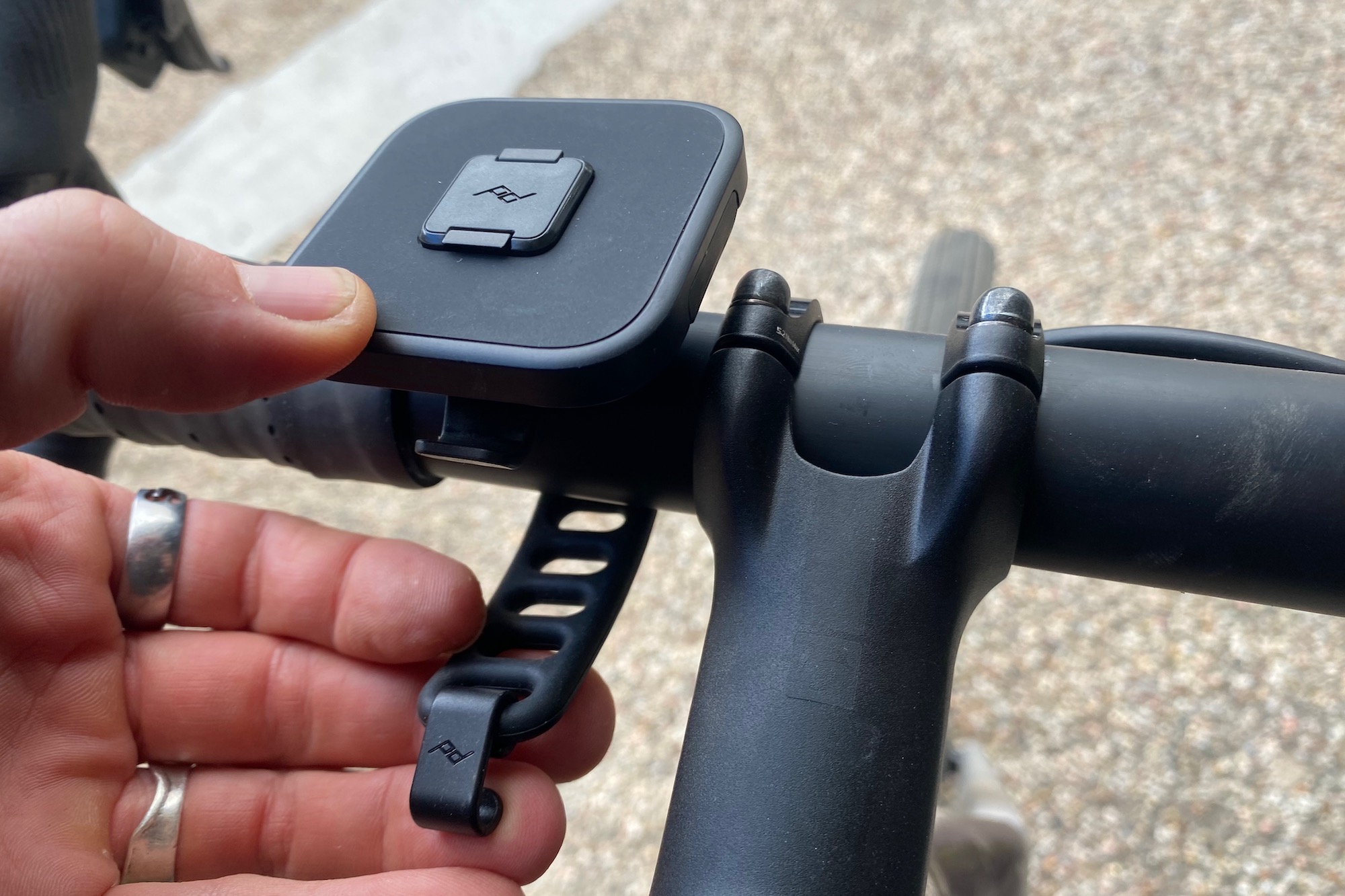
Mounting Method
Different bike phone mounts utilize different mounting methods. Some, like the Nite Ize Wraptor or the Peak Design Universal Bar Mount, attach to your handlebars with a rubber strap that works just like a belt. These straps stretch around the bar and usually have several holes in the strap that offer several options for various handlebar diameters.
This style of attachment makes it quick and easy to install and remove the mount, so you can take it off quickly if you’re not using it or switch it between bikes in just a few seconds. The drawback of this style is that they can sometimes move around a bit over rough, bumpy terrain
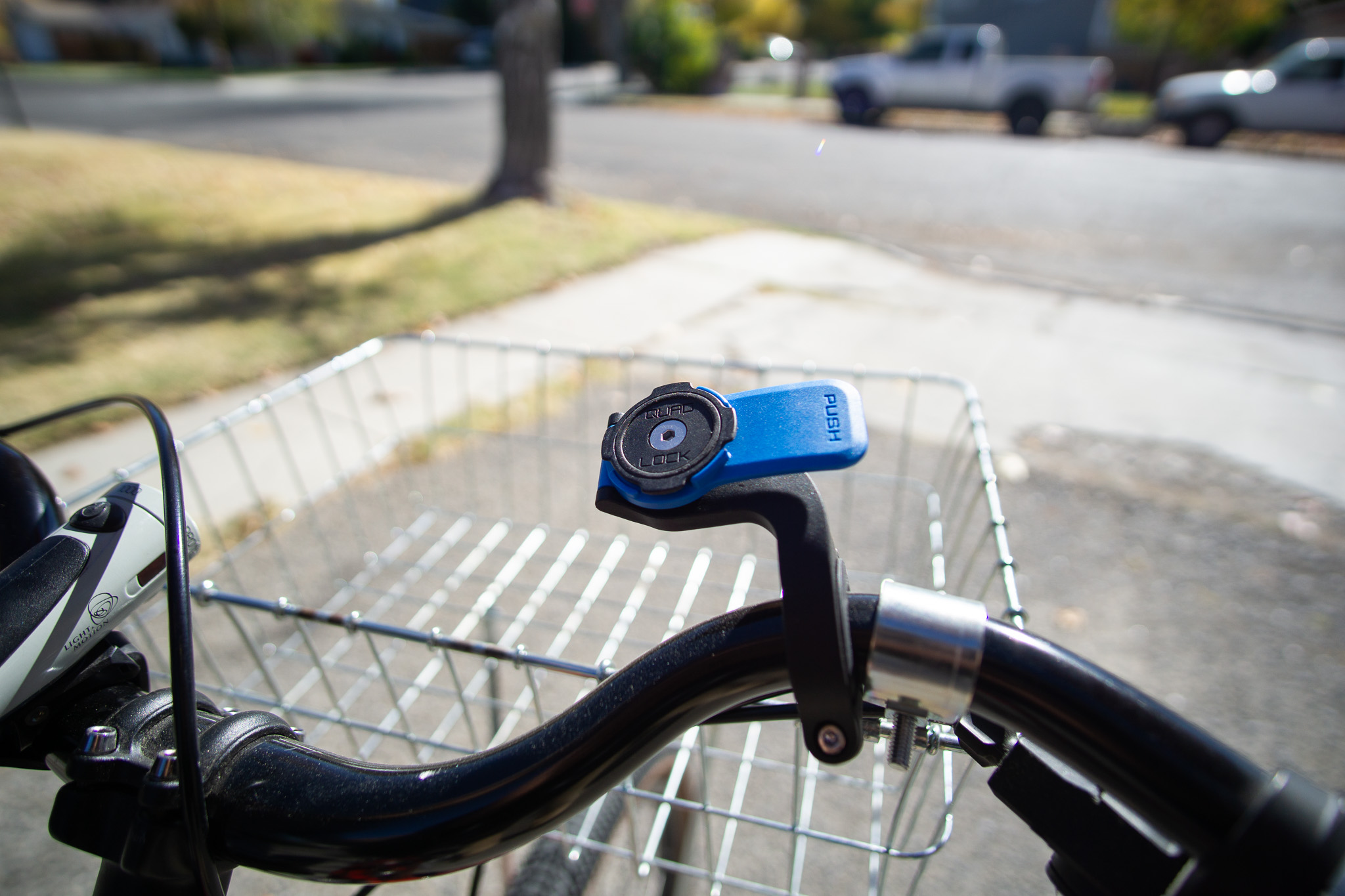
Other mounts, like offerings from Roam, attach to the handlebar with a round clamp and are tightened with an Allen key. In general, bike phone mounts that attach in this way, like the Peak Design Out Front or the Quadlock Outfront, will be the most stable and secure. That said, they require a tool and take a little more time to install and remove.
When selecting the best mount for you, consider the surfaces that you’ll be riding on. If you generally just ride on smooth pavement, then pretty much any mount will do. If you ride often on bumpy terrain, you’ll likely be better off with a mount that clamps more securely on the handlebar.
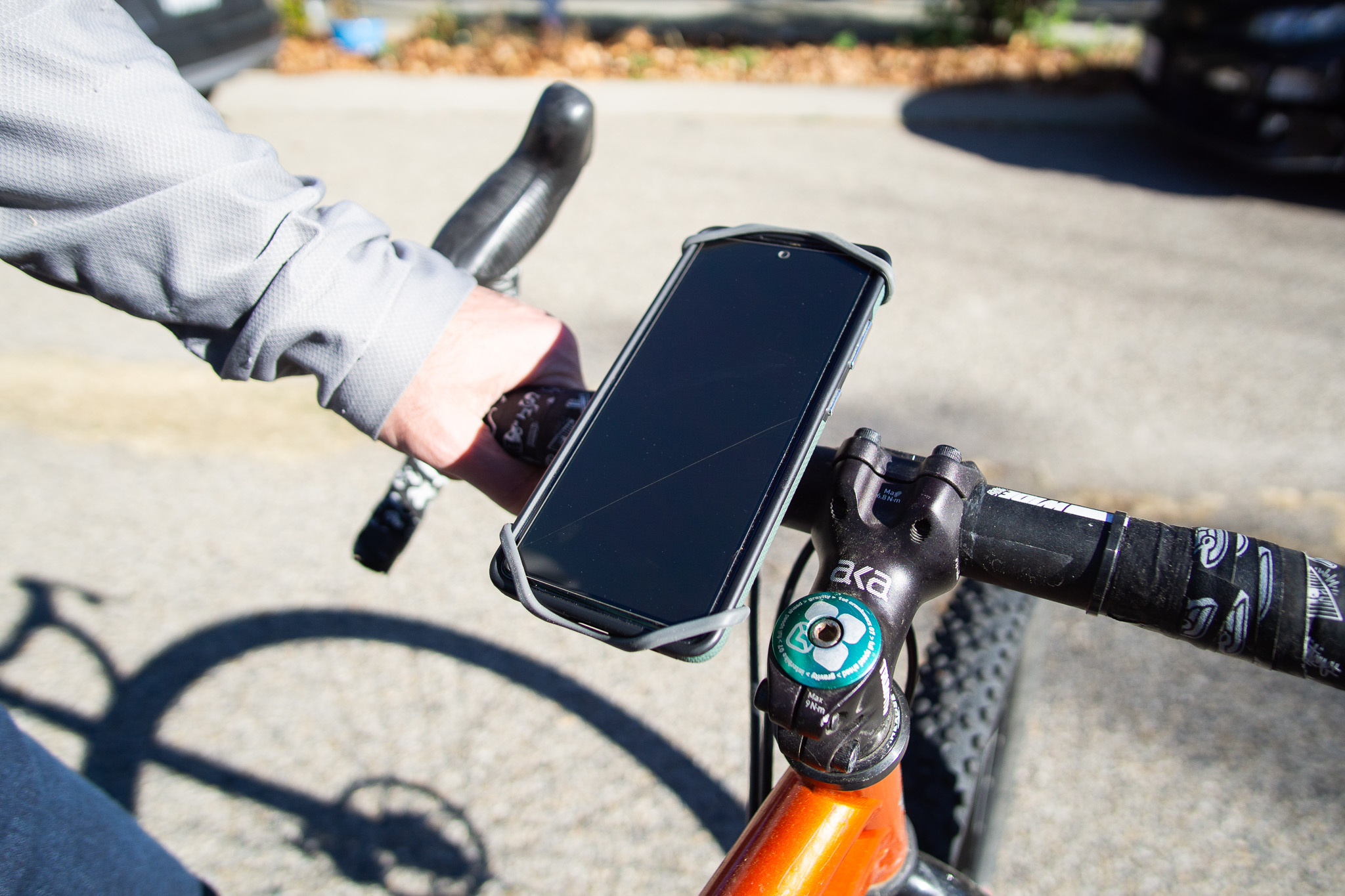
Smartphone Capability
Measure your smartphone before purchasing a mount. Make sure that the mount you’re considering is compatible with the make, model, and size of your phone. Most modern phones are less than 7 inches high and less than 3.5 inches wide. Many phone mounts have a “universal” fit and hold phones with clamping arms and/or rubber straps.
Some mounting systems, like the Rokform Universal mount, require the use of a compatible case, or they can be used with any phone as long as the phone is fitted with the proper adaptor. The same goes for the Peak Design and Quadlock mounts — you’ll need to factor the price of a compatible case or adapter into the equation and purchase them separately. This can make some of these phone mounts quite a bit more expensive, but you’re also typically getting a higher-quality product.
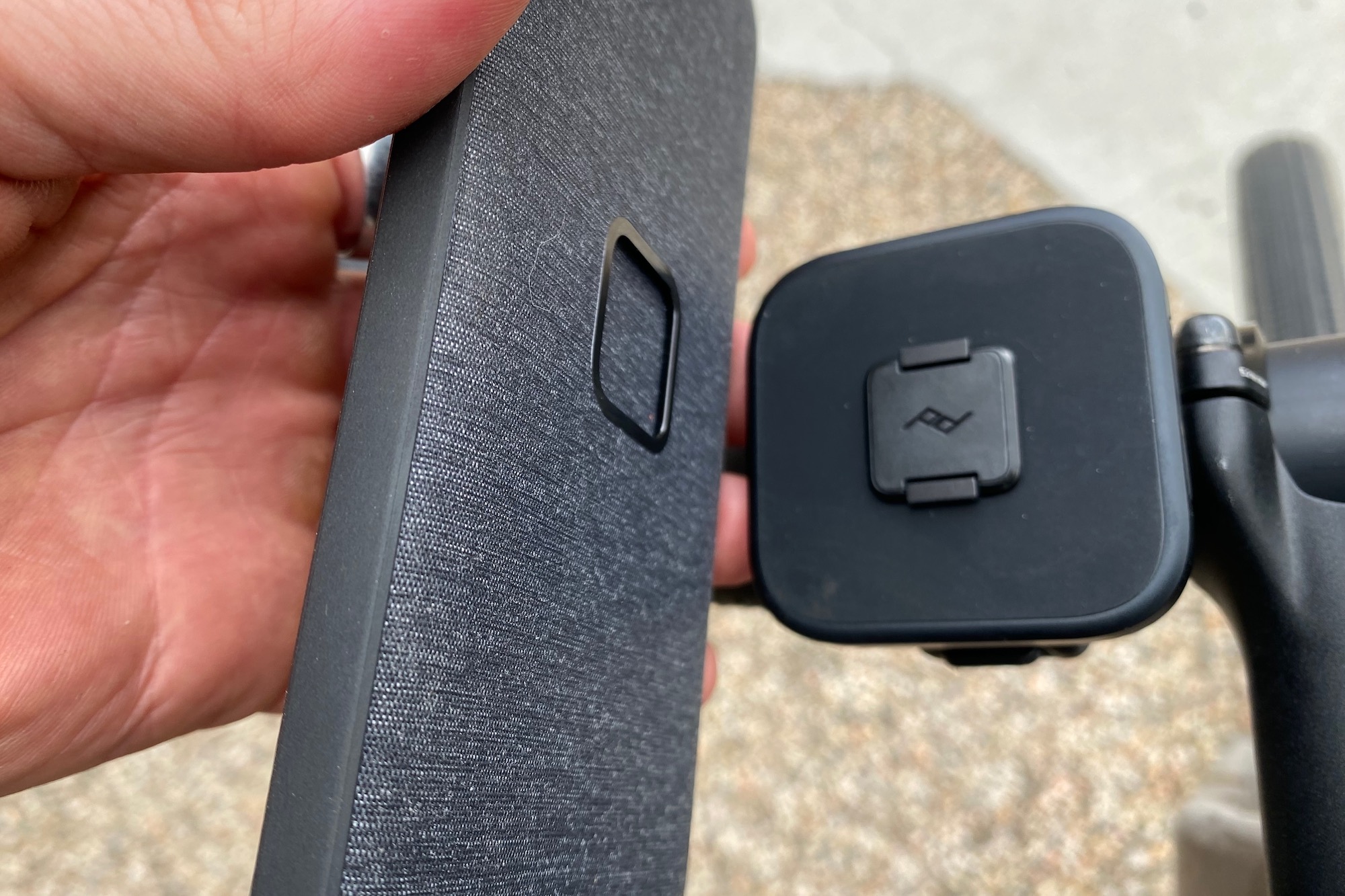
For bike phone mounts that require a compatible case or adapter, the brands often also offer an ecosystem of other mounts and accessories. Peak Design, for example, makes a variety of car and motorcycle mounts and accessories like tripods, charging stations, and mobile wallets that all work with the same case. It’s worth exploring all of the options before deciding which brand to buy.
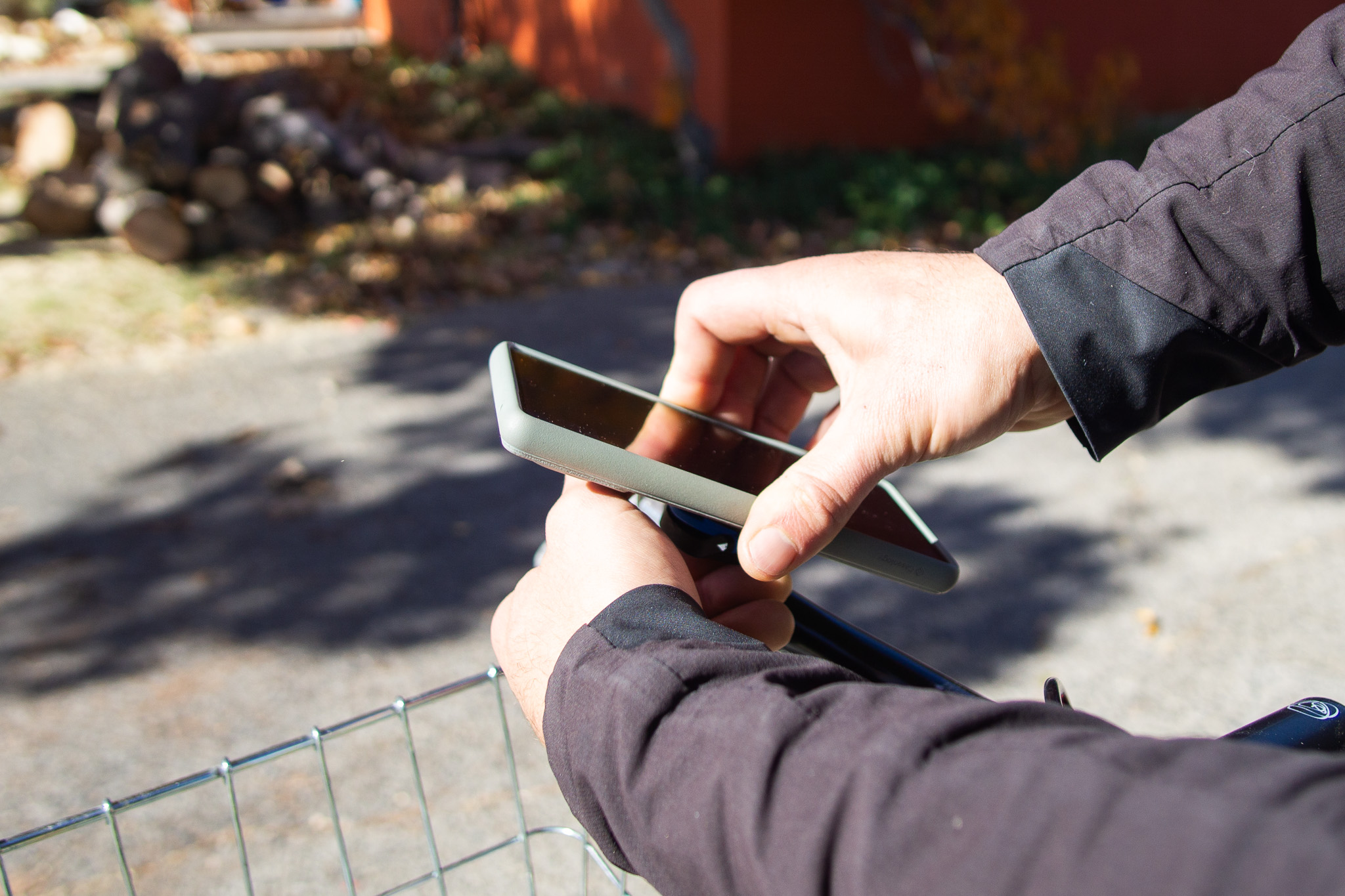
Ease of Phone Attachment
Depending on the mount you purchase, it can be exceptionally easy or slightly more difficult to attach or detach your phone to or from the mount. Mounts that utilize a compatible case or an adapter system typically offer a quicker and more user-friendly way to pop your phone in and out of your mount if you want to stop and take a quick photo during your ride.
Peak Design’s Out Front and Universal Bar Mounts have far and away the most user-friendly system that we’ve used. That said, you have to purchase a case that fits your phone or an adapter, which adds to the overall cost of the mount. Rokform and Quadlock also use similar systems, although they aren’t quite as easy to use.
Some phone mounts use silicone bands that stretch around the corners of the phone to hold them in place. These typically have a “universal” fit and don’t require any special cases or adapters. That said, it is a bit more time-consuming to get your phone into them, sometimes the bands cover part of your screen, and they aren’t quite as stable as the options mentioned above.
Durability
If you spend a lot of time riding on rough trails and through wet and windy weather, you’ll want to purchase a mount that is built with durability in mind. Plastic and silicone may not be as durable as similarly priced mounts that are made of metal, like the GUB Bike Phone Mount, for example.
It’s also important to consider that stretchy silicone bands will lose some of their elasticity over time and repeated stretching. Still, you should expect to get several years of use out of most bike phone mounts, assuming you take reasonable care of them and don’t crash on them often (or ever, hopefully).
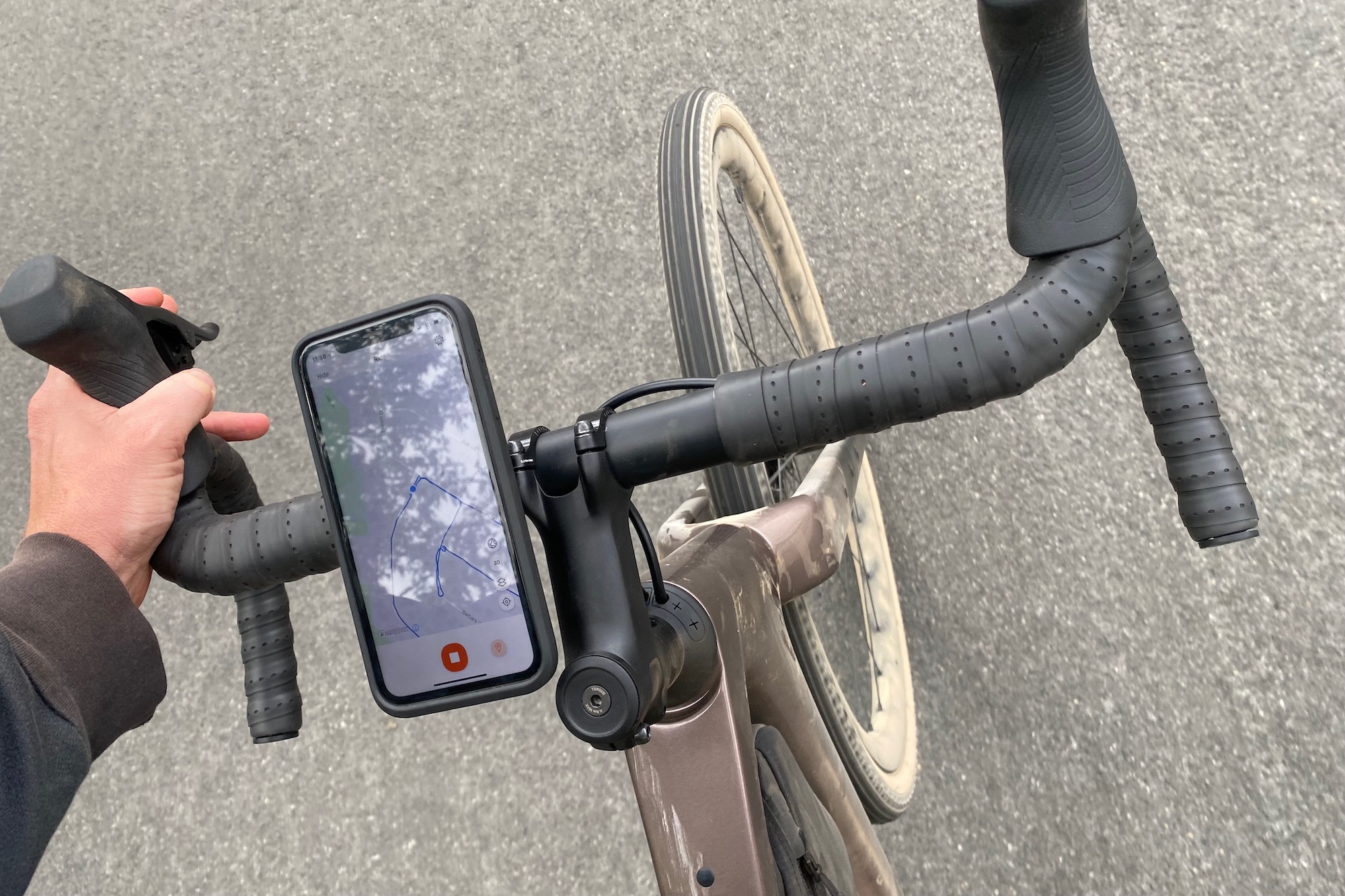
Water Resistance
The components of most bike phone mounts are going to be water-resistant, but you may want to consider the addition of a waterproof case if you plan to spend a lot of time riding through wet, rainy, or muddy conditions. If this is the option you choose, look for a mount that will still be compatible with your phone while the case is on.
Typically, the mounts that hold the phone with silicone bands will be the most likely option, as they can stretch around a bulkier case. You can also likely add an adapter to a waterproof case for the mounts that require it.
Rough Terrain Capability
If you’re riding mostly on smooth surfaces, any of the mounts listed above will be able to handle the task of securing your phone and keeping it steady. If you’ll be primarily riding off-road with your phone bike mount, be sure to purchase a product that will hold up to the kind of vibration your riding style regularly creates. This relates to the mount attaching to your bike, as well as the phone attaching to the mount.
The models that clamp on the handlebar, like Peak Design Out Front and the Quadlock Outfront, are more stable on the handlebar than those that attach with rubber or Velcro straps. Additionally, the phone attachment systems for both mounts combine mechanical and magnetic attachment, which offers great stability and security while riding hard on rough terrain. The Rokform Universal attaches the phone similarly, although it doesn’t clamp the handlebar quite as securely.
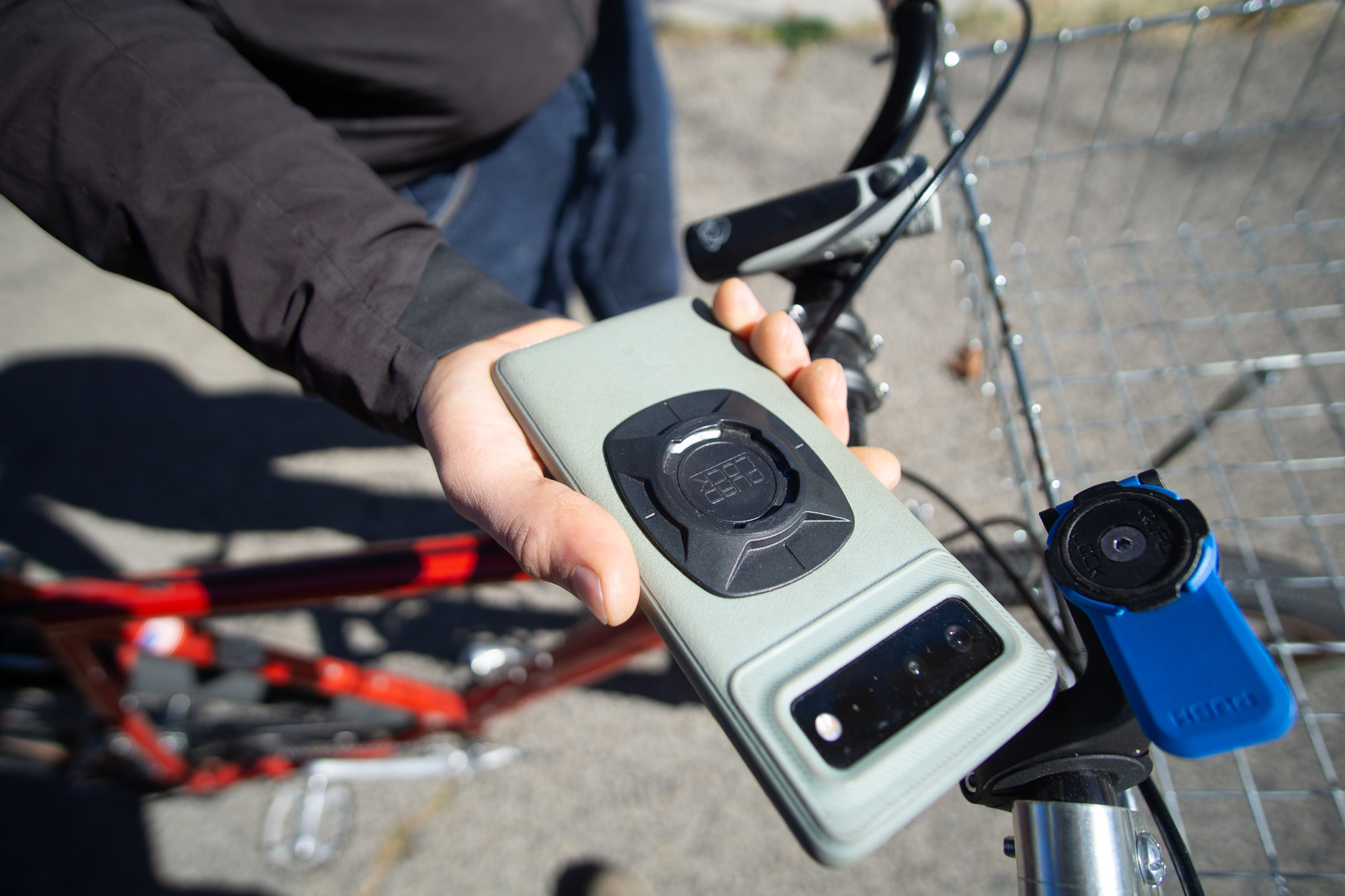
Price & Value
There’s a fairly large range of prices for bike phone mounts, with the models we tested costing between $20 and $70. And, for the more expensive mounts, that doesn’t even factor in the additional cost of purchasing a compatible phone case or adapter, which can increase the total price by anywhere from $15 to $70. Since they all perform roughly the same task, it’s fair to wonder what the differences are.
Budget
At the lower end of the price range, around $30 and under, we find products that get the job done but are less refined and elegant than their more expensive counterparts. Generally speaking, they are made from lower-quality materials, and they aren’t quite as stable or durable. That said, if you typically ride smooth surfaces and don’t demand a lot from your bike phone mount, then most of them will perform dutifully and give you little to complain about.
For example, the Nite Ize Squeeze Rotating Smartphone Bar Mount ($30) fits just about any handlebar and phone with rubber bands that secure both. It is relatively straightforward to use, can be turned to orient your phone in various positions, and works well for riding on smooth surfaces. It’s affordable and well-made, making it a great value.
Similarly, the Rockbros Phone-Frame Bag ($26) is an affordable way to hold both your phone and some other gear on your bike. Again, it isn’t the most attractive option, but if you need a little cargo space and a place to put your phone, it’s got you covered. Spend a few bucks more for the Lezyne Smart Energy Caddy XL ($40) and you get a nicer-looking bag that’s sturdier and can attach to the bike directly or with straps.
Mid-Tier
As we climb up the price ladder, we start to see higher-quality materials and attachment methods. The Quadlock Outfront Bike Mount ($60) is a good example. This mount had an ultra-solid, aluminum mount that held it securely to the handlebars. We didn’t have to constantly worry that we’d look down and find that our phone, along with our phone, was suddenly gone.
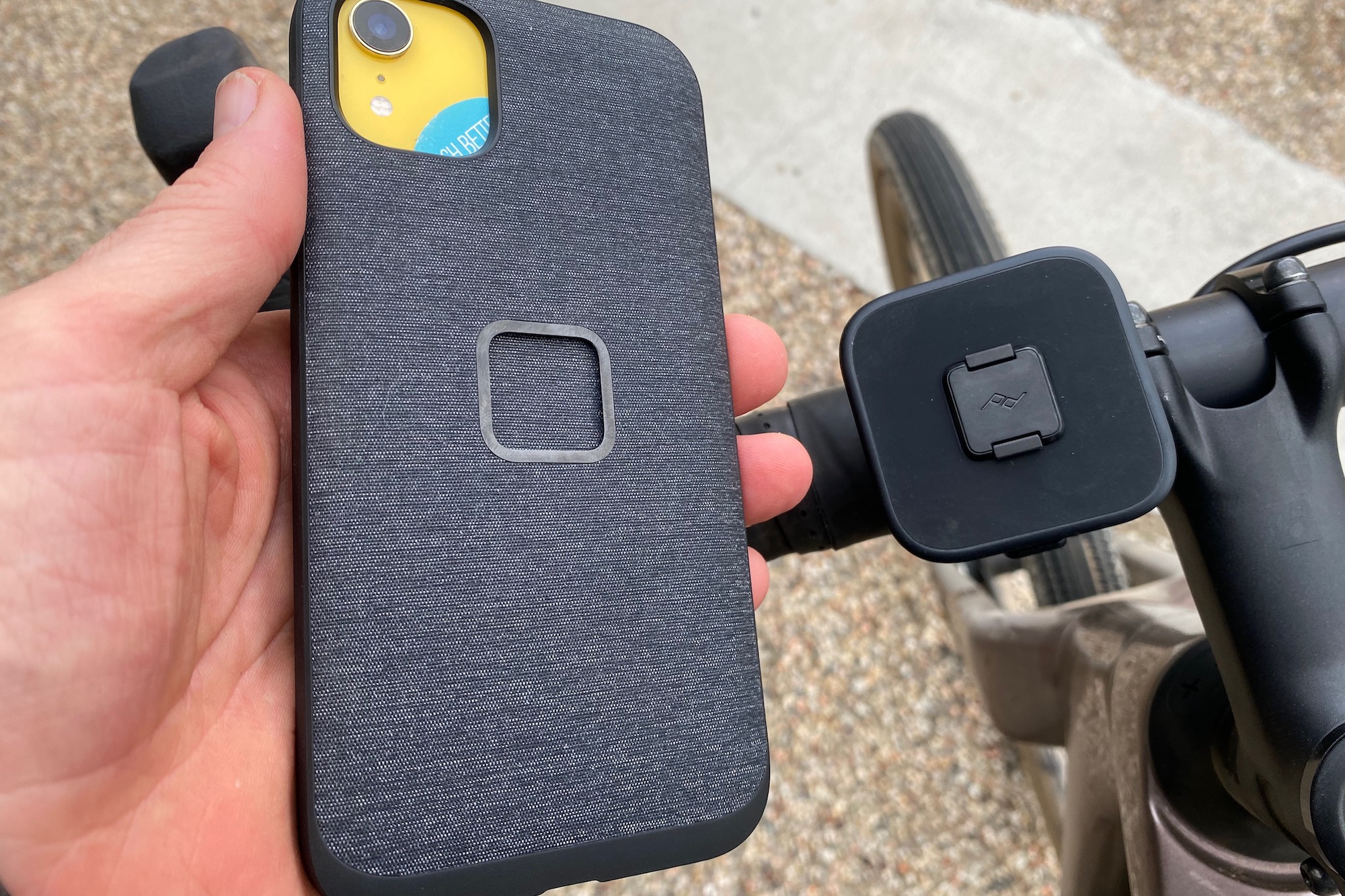
Premium
The high-end of the bike phone price range is a bit muddled due to the fact that many of the mounts we tested require the use of a compatible phone case or adapter. While the price of the mount itself may be in the $50-70 range, you’ll need to spend an additional $15-70 to securely attach your phone to the mount. That said, these also happen to be the most user-friendly and secure, so if you’ve got the money to spend, you’ll also find the best performance.
The Peak Design models, both the Out Front ($70) and the Universal Bar Mount ($50), are two of our favorite options. Both require the purchase of the Everyday Case ($40 to $50, depending on the phone model) or the Universal Adapter ($30), but thankfully, the cases are quite attractive — and they work with Peak Design’s ecosystem of other mounts and accessories.
Not only are they impressively easy to use, but the magnetic and mechanical connection between the mount and the case is very secure. The Universal Bar Mount is great if you switch between bikes often and ride mostly smooth surfaces, while the Out Front is more stable for riding off-road.
Similarly, the Quadlock Outfront ($60) is one of the most stable and secure bike phone mounts you can find. Again, you need to get a compatible case ($40-ish) or adapter ($15), but the security of the system is undeniable. It’s a little fiddlier to attach the phone to the mount than the Peak Design system, but you won’t need to worry about your phone going anywhere.
Frequently Asked Questions
A bike phone mount allows a cyclist to view and engage with their smartphone’s display while actively riding. These mounts typically attach to your handlebars and allow your smartphone to function as a mini-dashboard display.
Not every cyclist prefers to have access to their smartphone while riding. For those who do though, a bike phone mount is a great solution. For mid-ride control of music streaming, navigation, and progress-tracking apps, the smartphone bike mount is the way to go.
Different mounts are better for different riders depending on their features. We recommend all of the bike phone mounts on this list, but our favorite is the Peak Design Out Front. Yes, it is more expensive, but it is incredibly easy to use, secure, and stable for any type of riding.
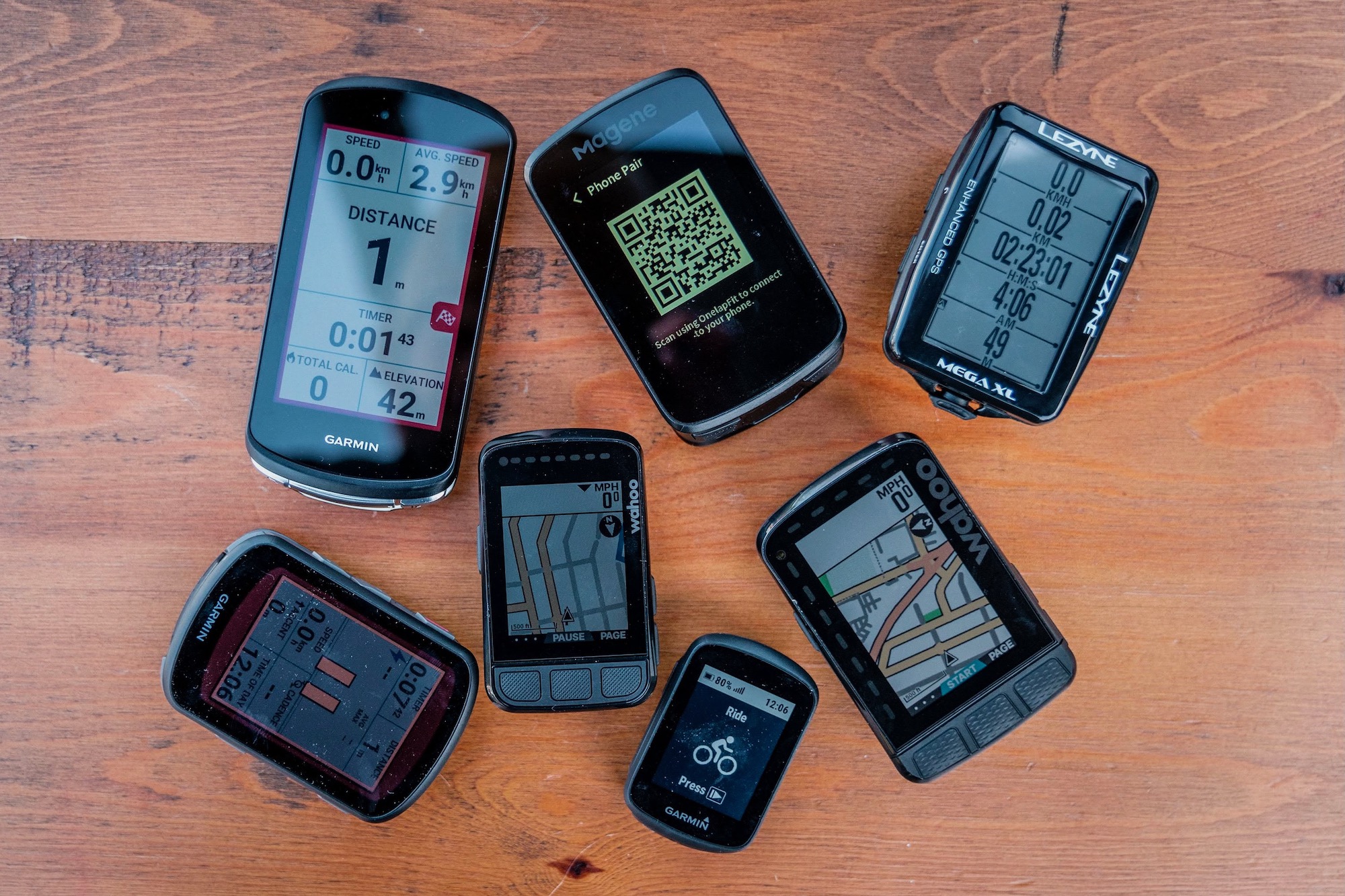
The Best Bike Computers of 2025
We tested the top models from Garmin, Wahoo, Lezyne, and more to find the best bike computers for all riders.
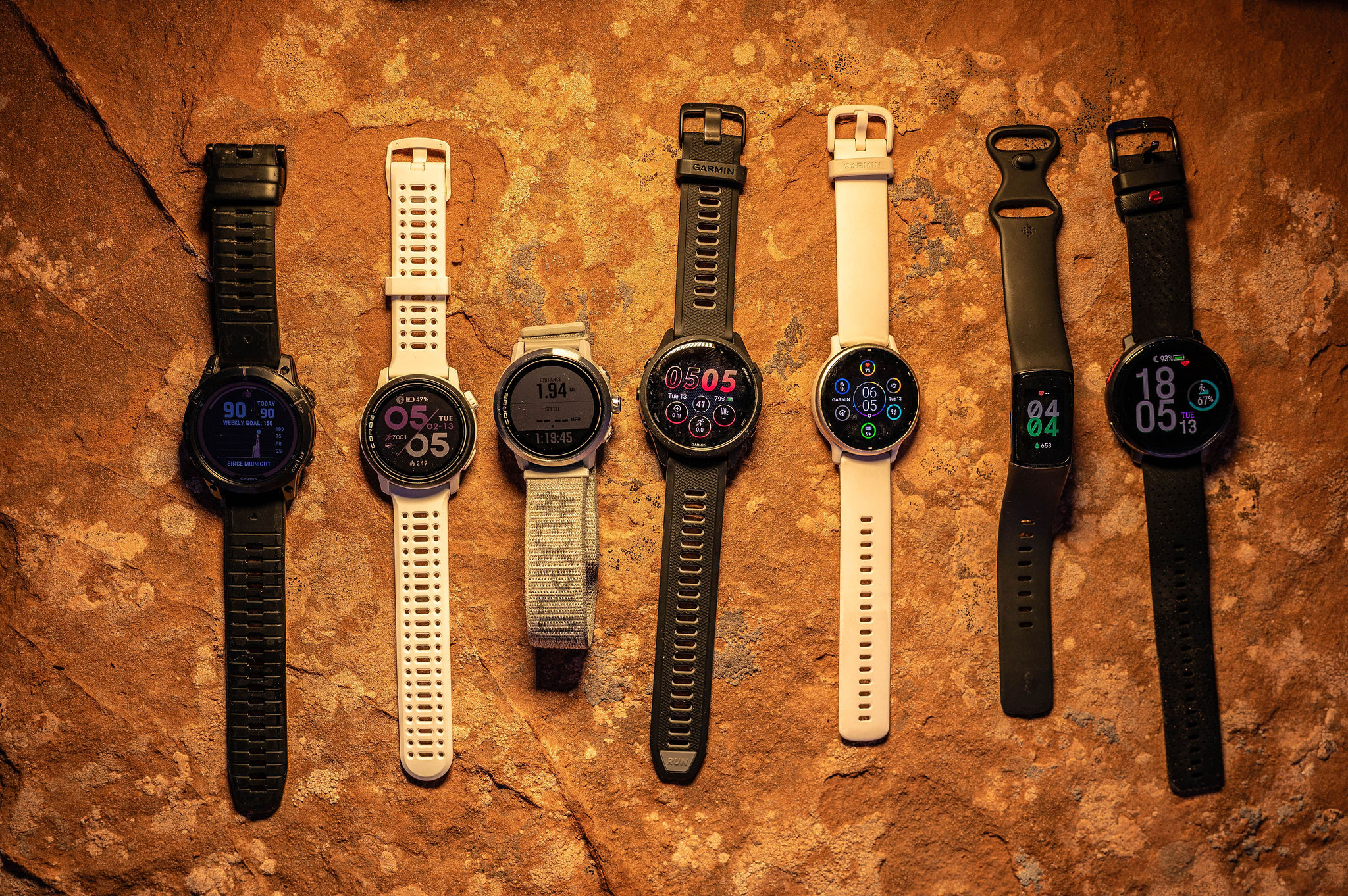
The Best Fitness Watches of 2026
We tested the best fitness watches of 2025 with options for every budget. Our top picks include Garmin, COROS, and more!
